NM Driving Test
1/110
There's no tags or description
Looks like no tags are added yet.
Name | Mastery | Learn | Test | Matching | Spaced |
|---|
No study sessions yet.
111 Terms
Driver's License Renewal
Valid for 4-8 years; can renew up to 90 days before or 30 days after expiration date.
Not wearing a seatbelt is....
ILLEGAL
Green Light
Go! BUT yield to emergency vehicles.
Green Arrow
Protected turn; no oncoming/cross-traffic!
Left Green Arrow
Protected turn, no oncoming traffic. Yield to pedestrians!
Yellow Light
Stop if safe to do so.
Flashing Yellow Light
Slow down and proceed with caution.
Yellow Arrow
Green arrow protection will end soon.
Red Light
Full stop (may turn right if not prohibited)!
Flashing Red Light
Stop sign rules!
Red Arrow
Full stop, no turning!
Cross Road Sign
Cross-road ahead!
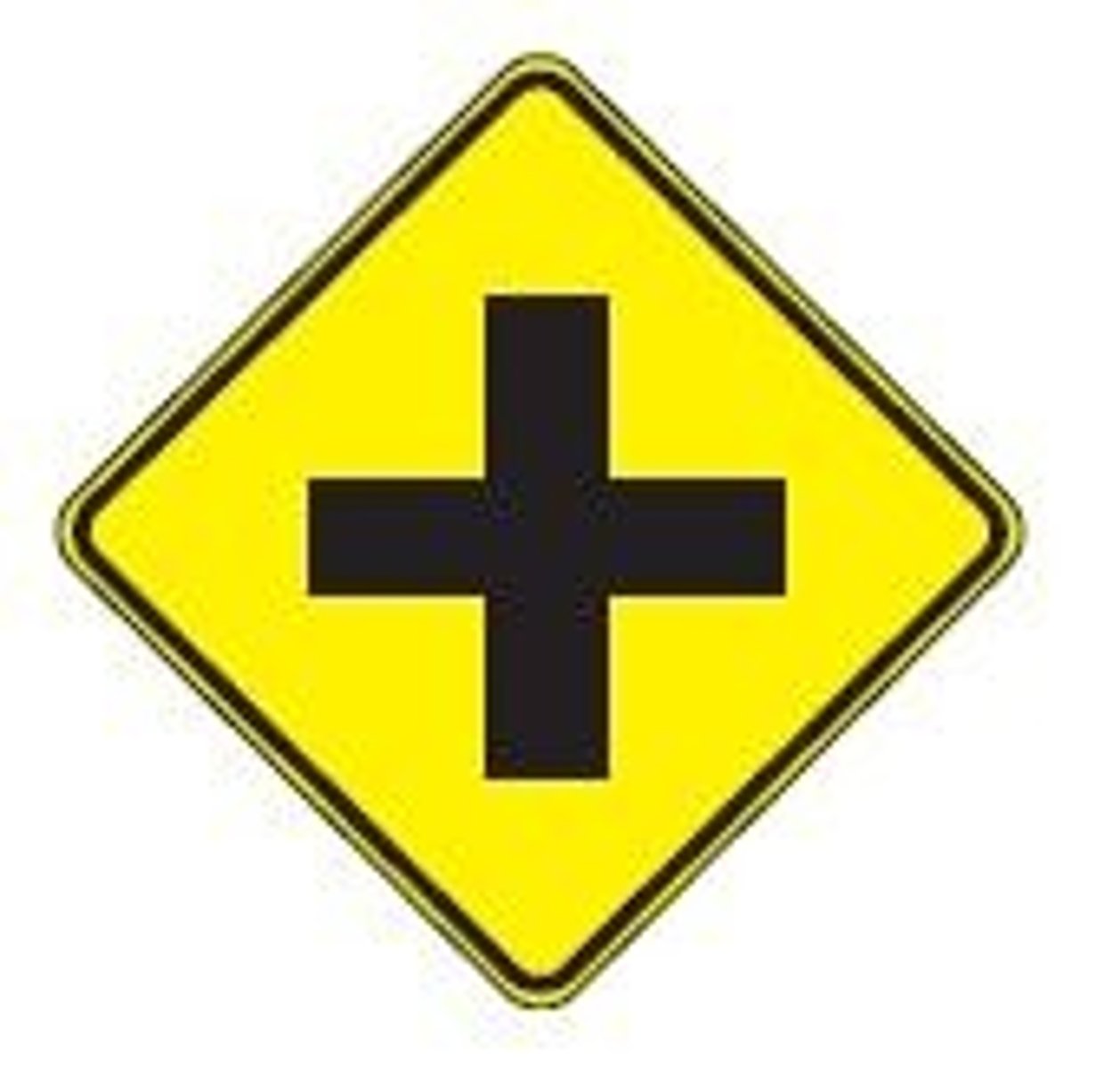
Signal Ahead Sign
Stoplight ahead!
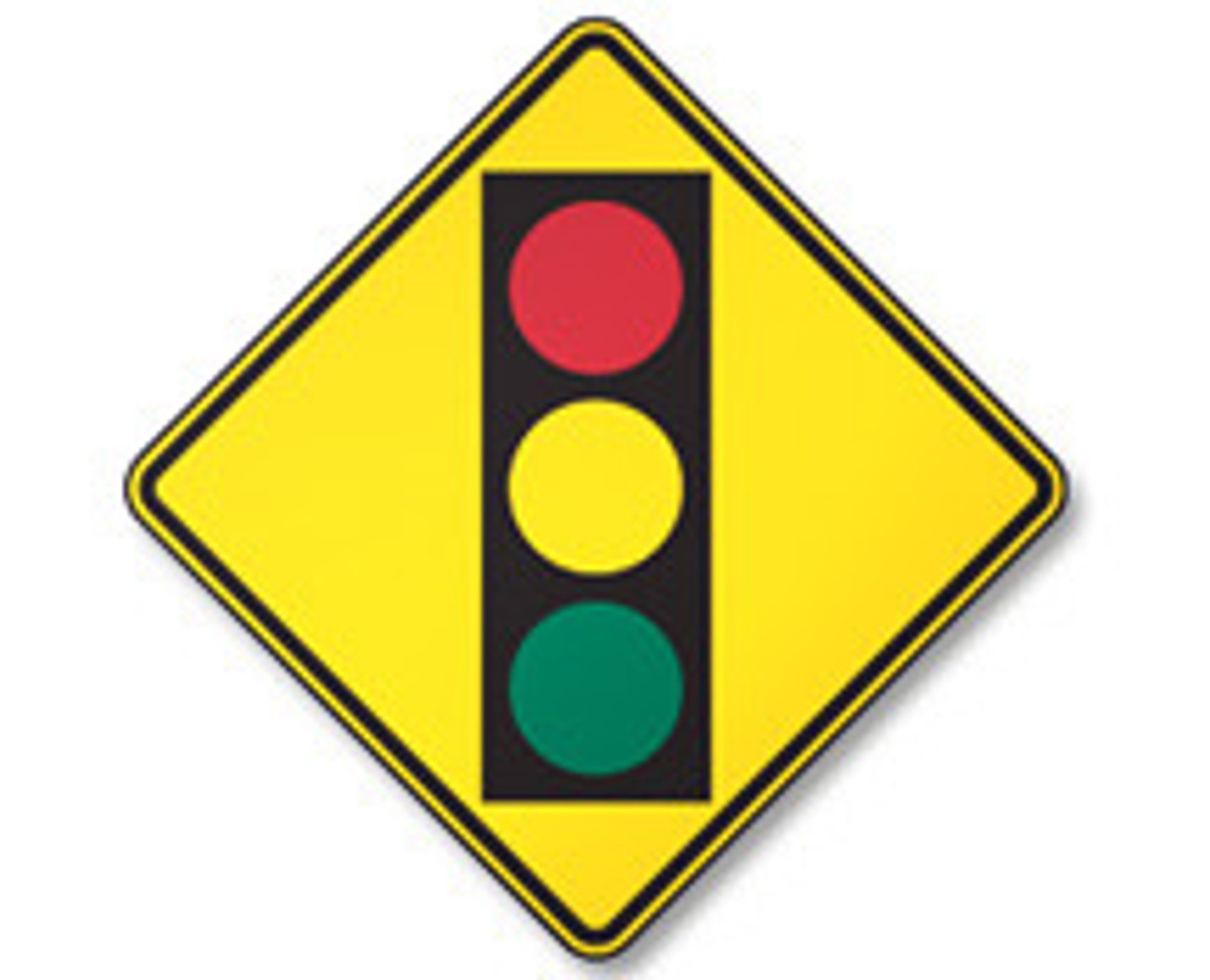
Merge Traffic Sign
Traffic will merge ahead!
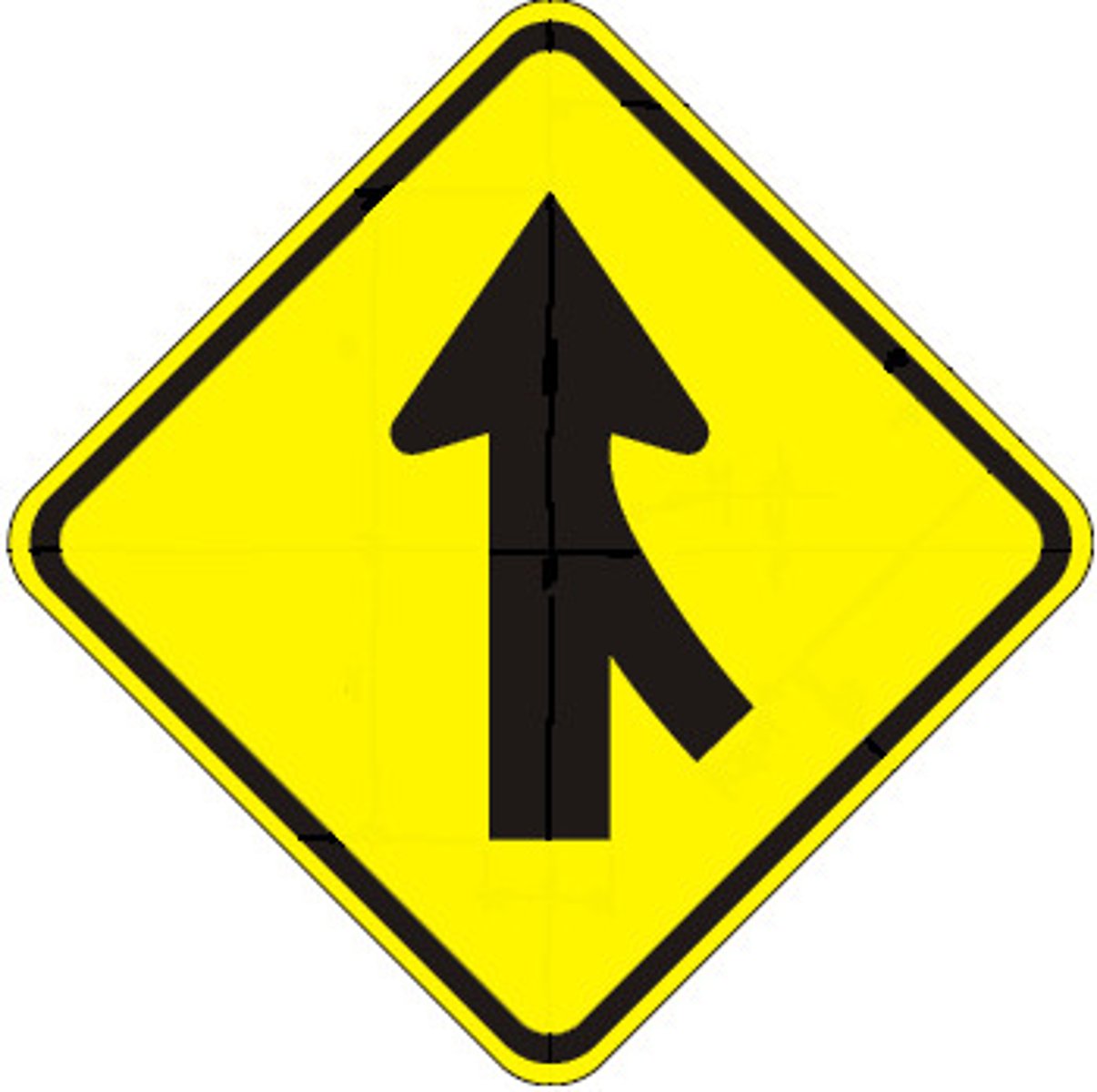
Two-Way Sign
Two-way street ahead!
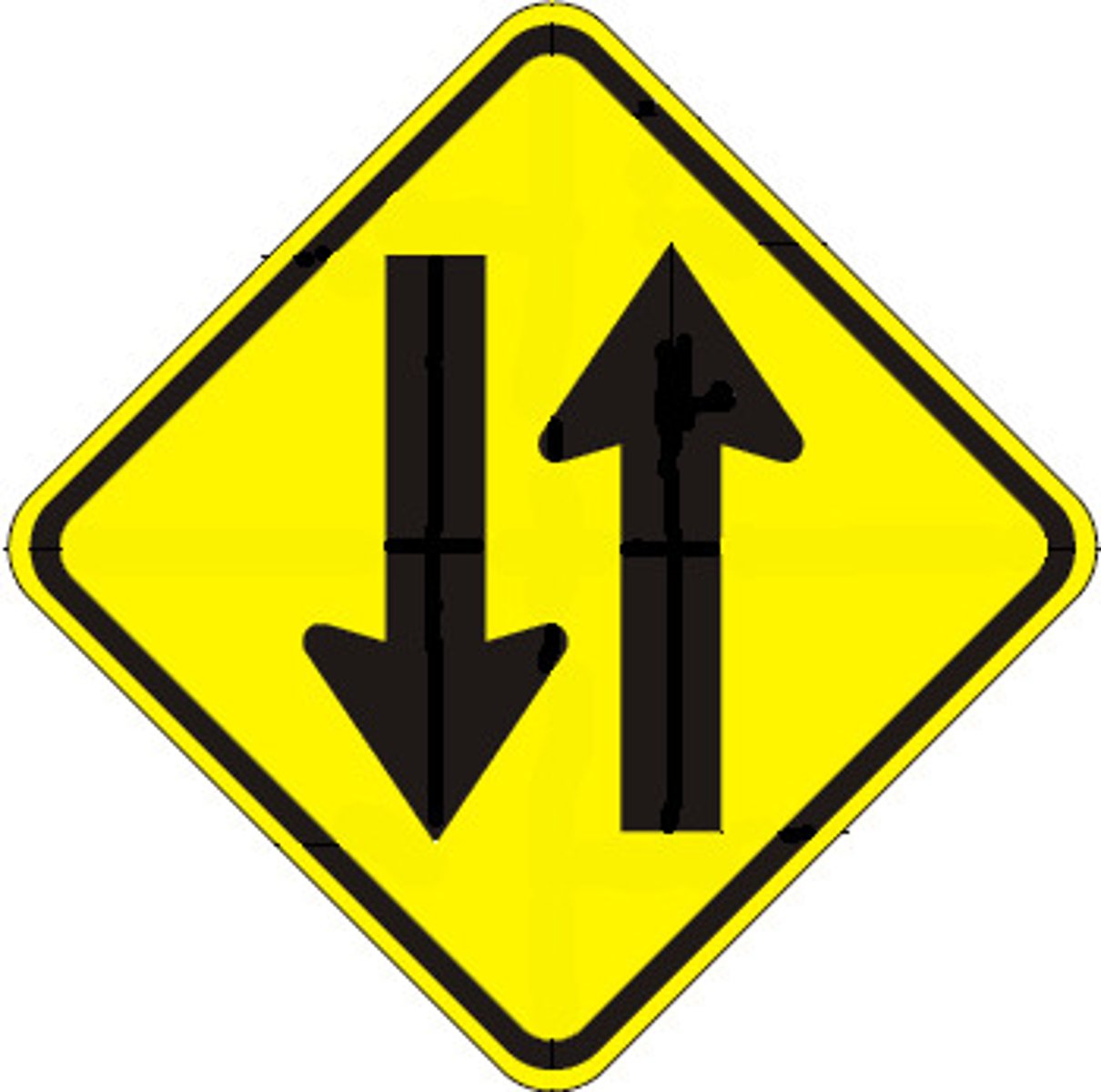
Right Lane Ends Sign
Right lane will merge left.
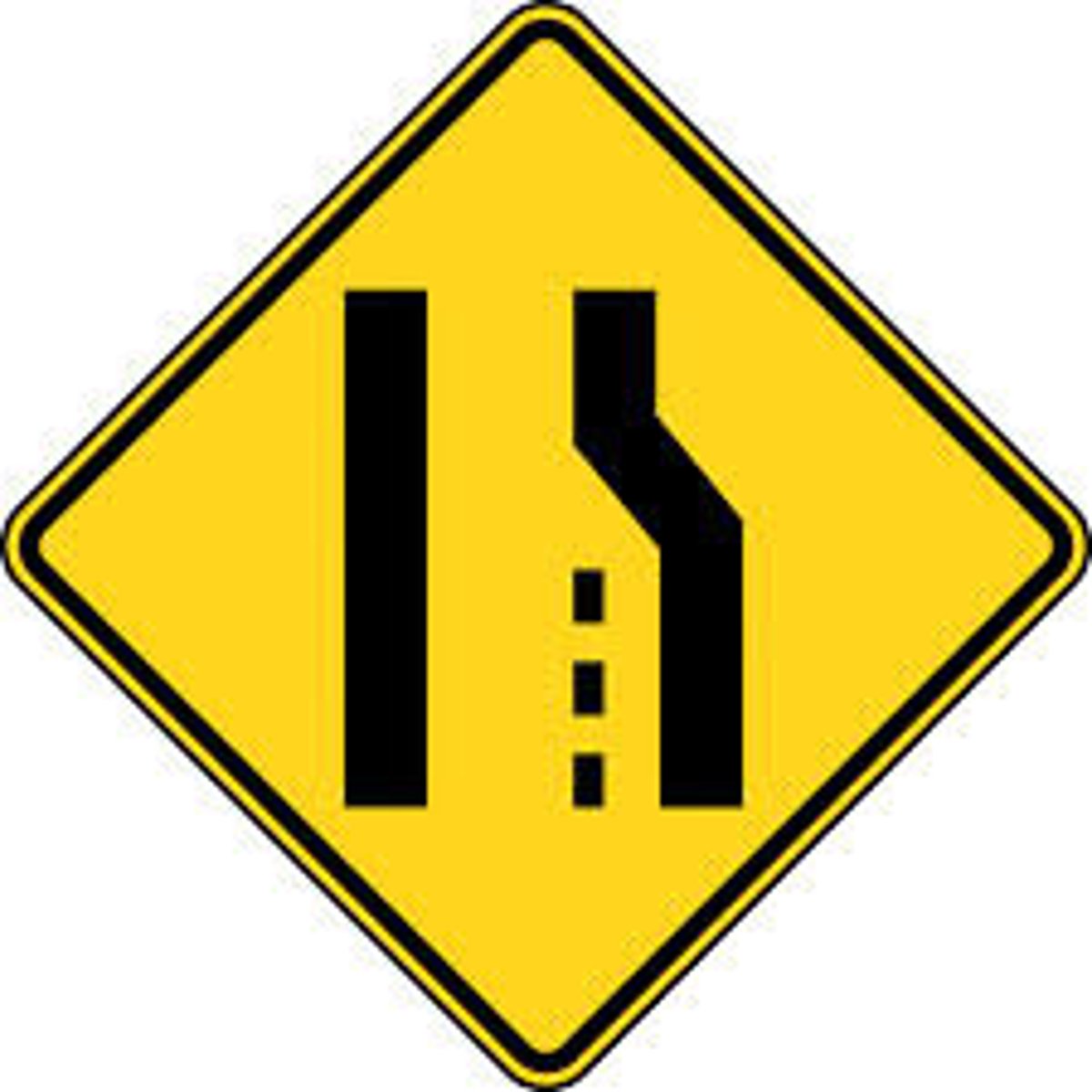
Pedestrian Crossing Sign
Crosswalk ahead!
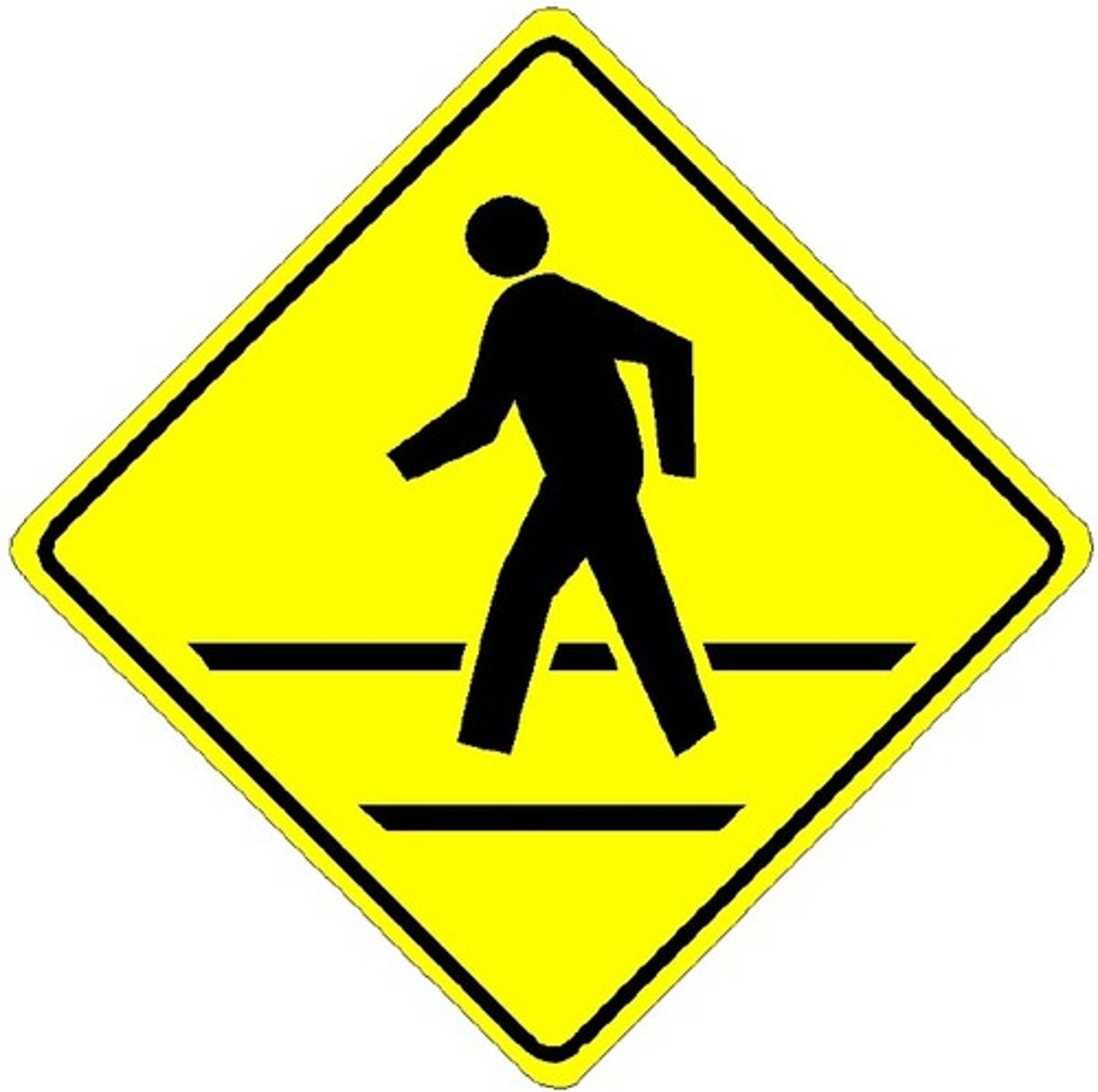
Divided Highway Sign
Divided highway ahead.
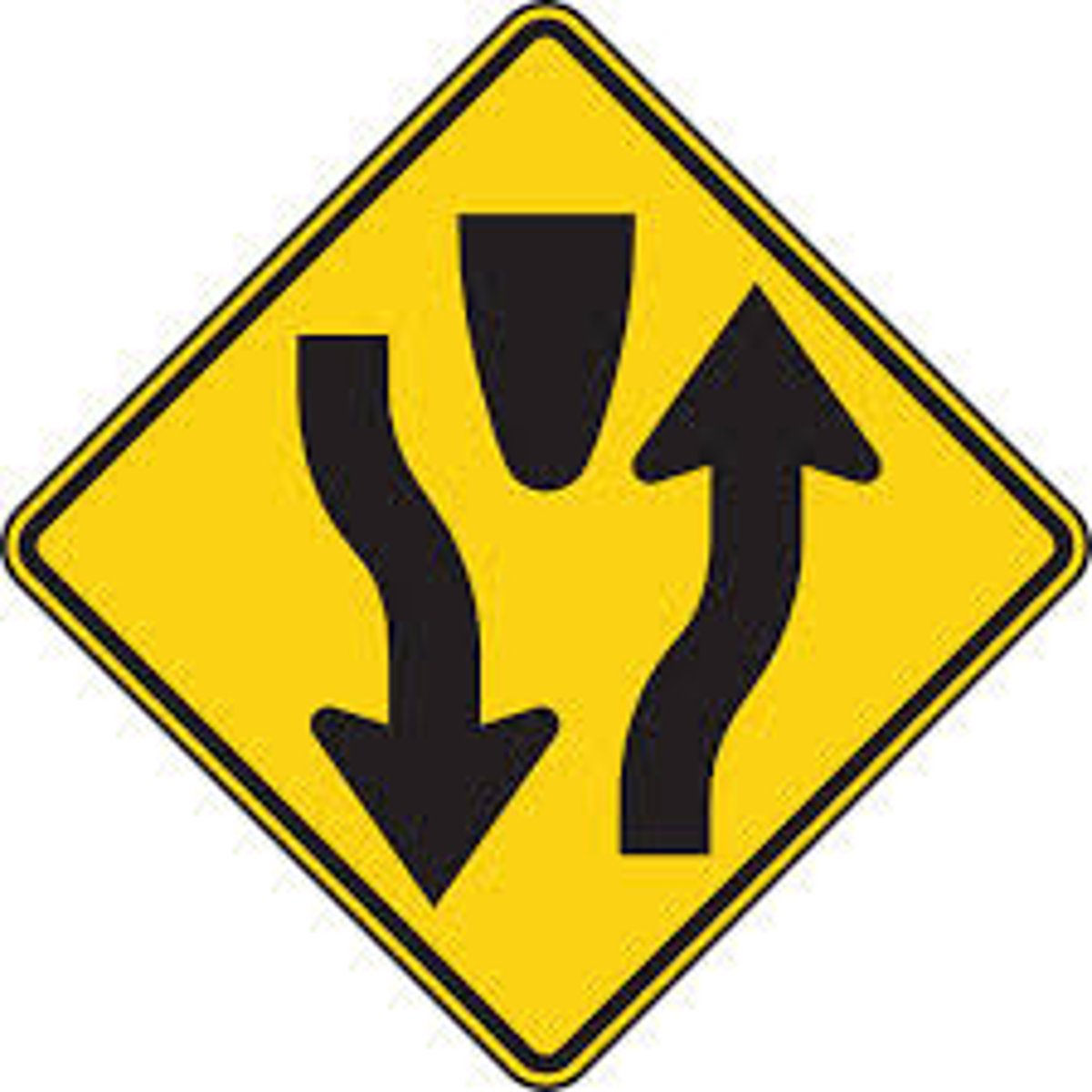
Divided Highway Ends Sign
Divided highway ends ahead.
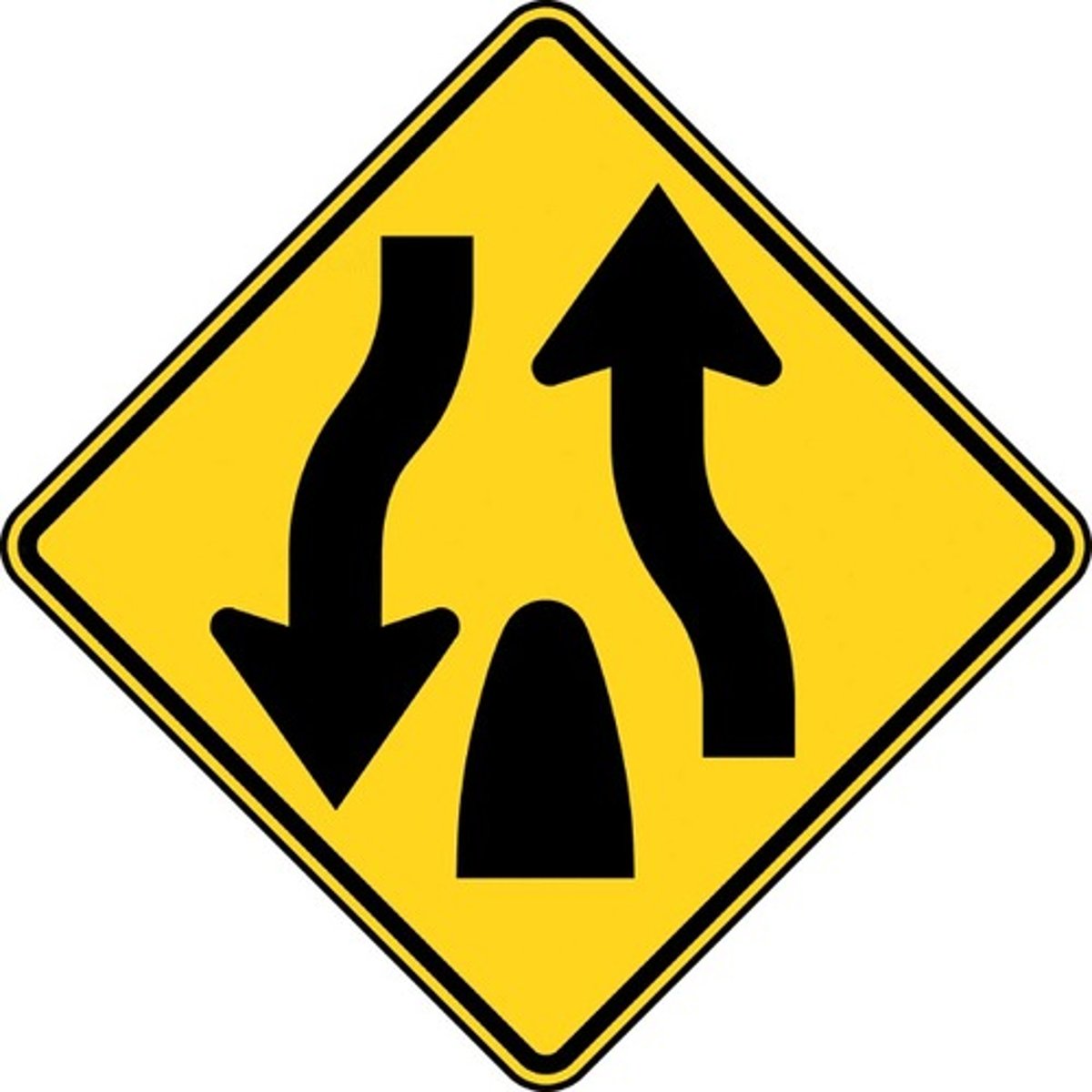
Low Bridge Sign
Low bridge ahead.
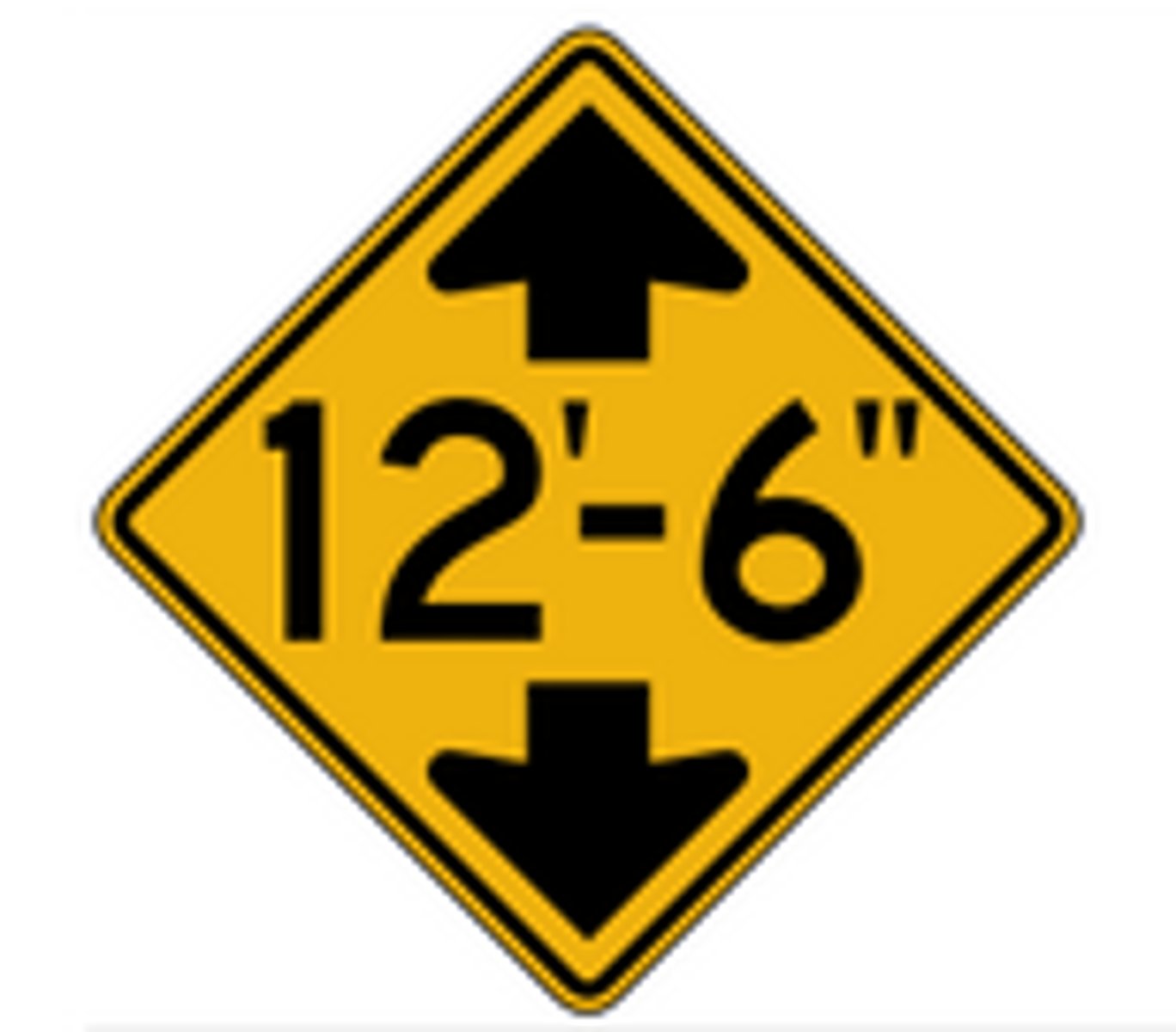
Slippery When Wet Sign
Road is slippery when wet.
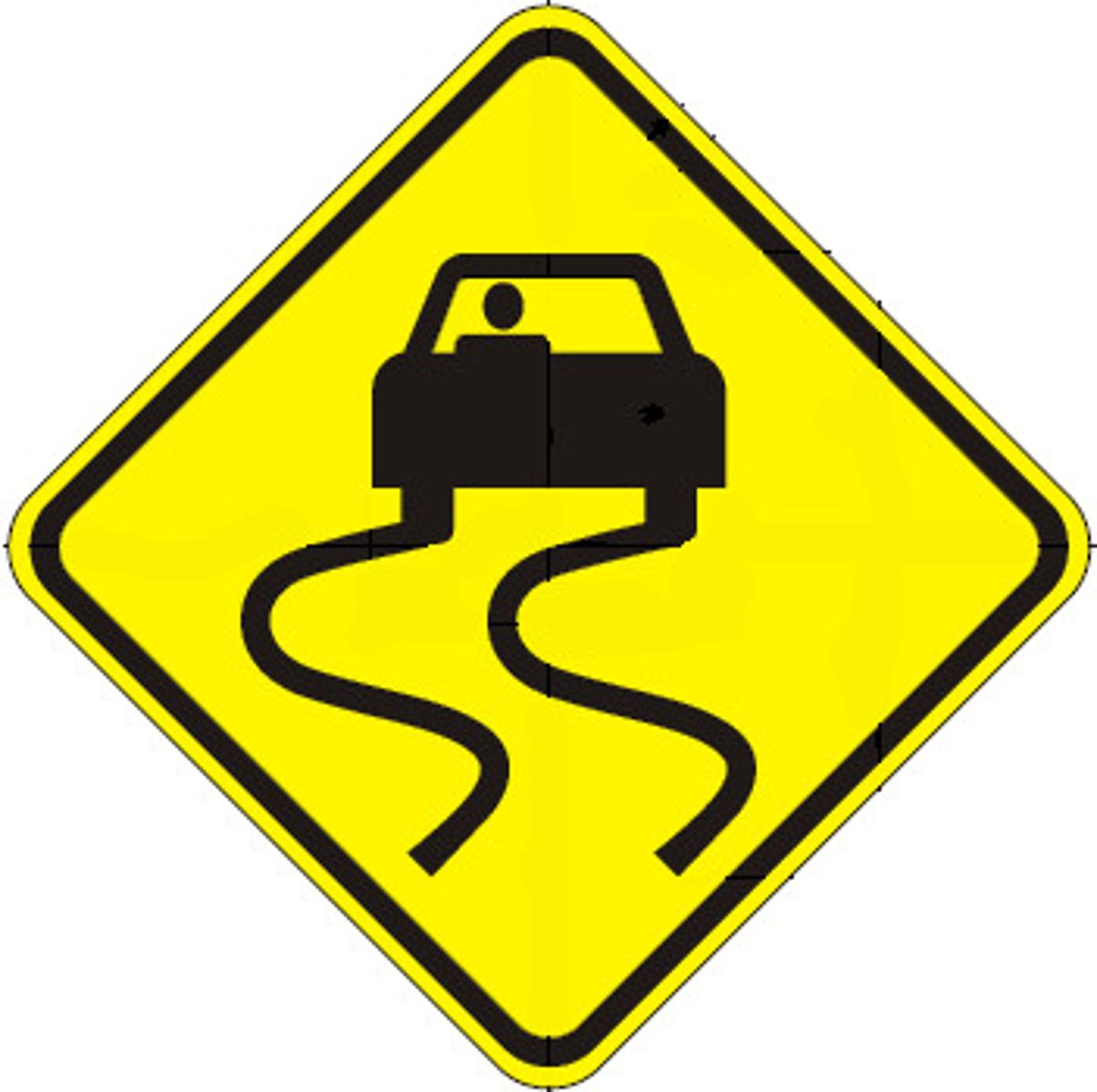
Hill Sign
Steep hill ahead.
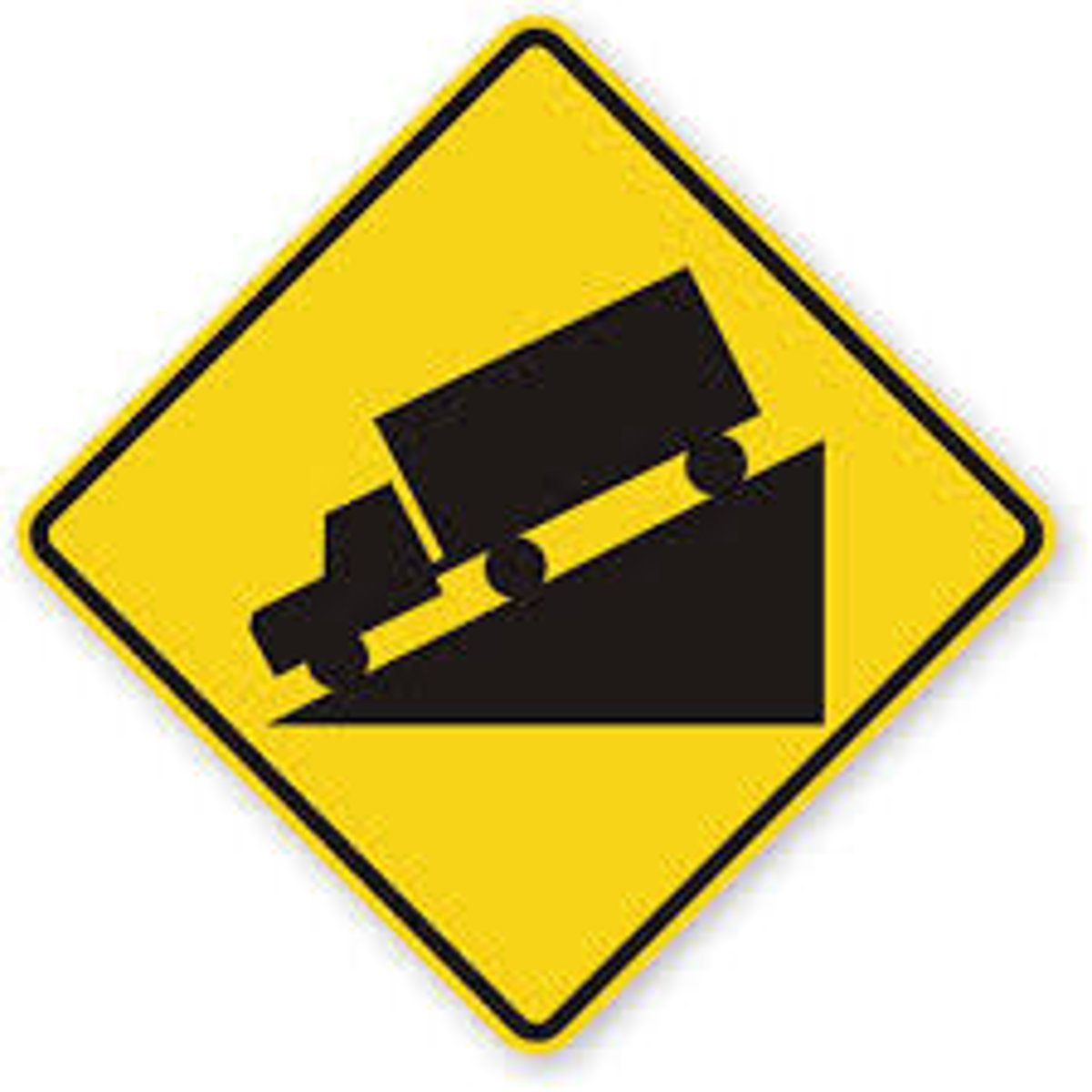
School Zone Sign
School zone ahead/begins.
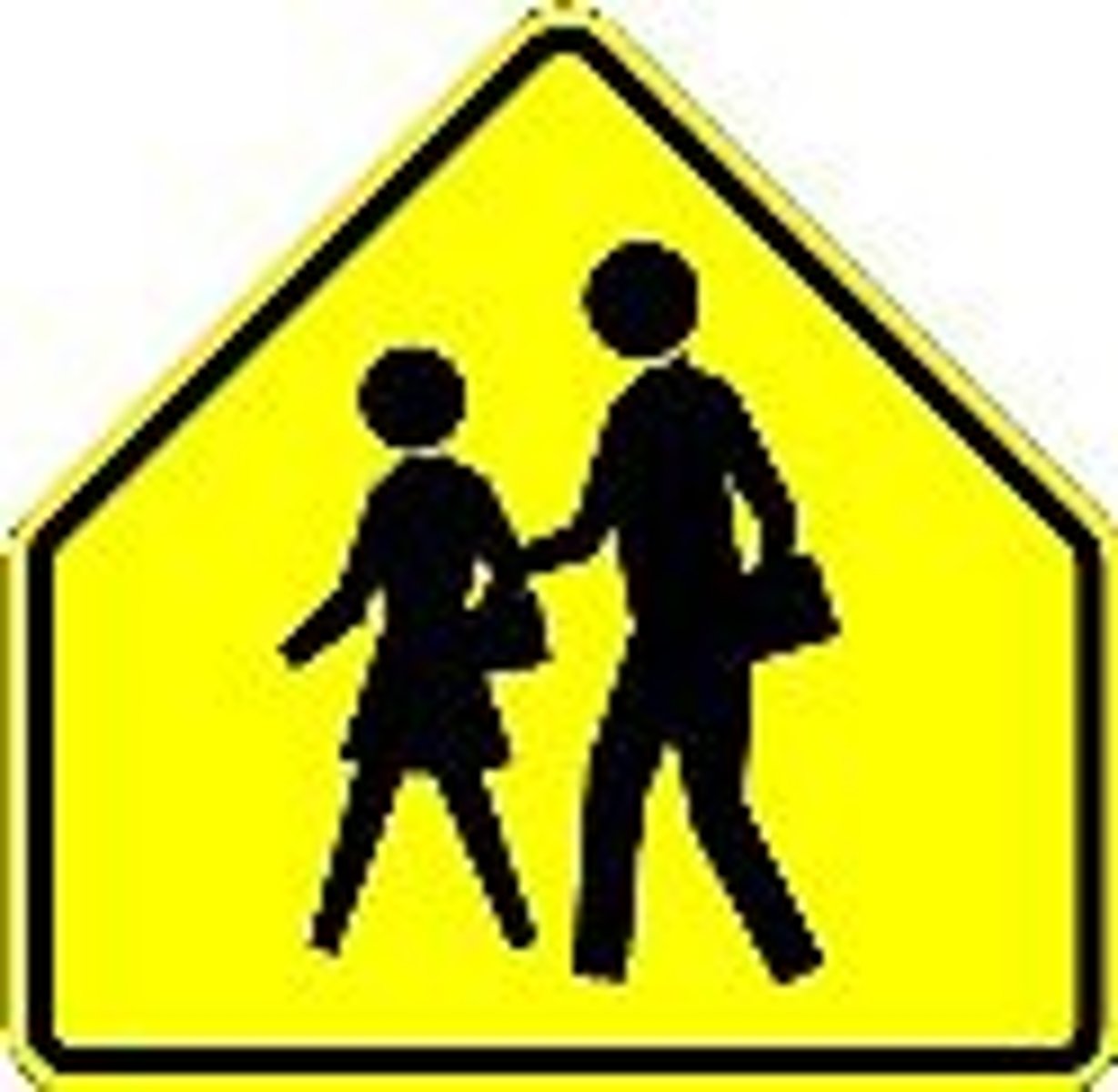
School Zone Crossing Sign
School crosswalk ahead!
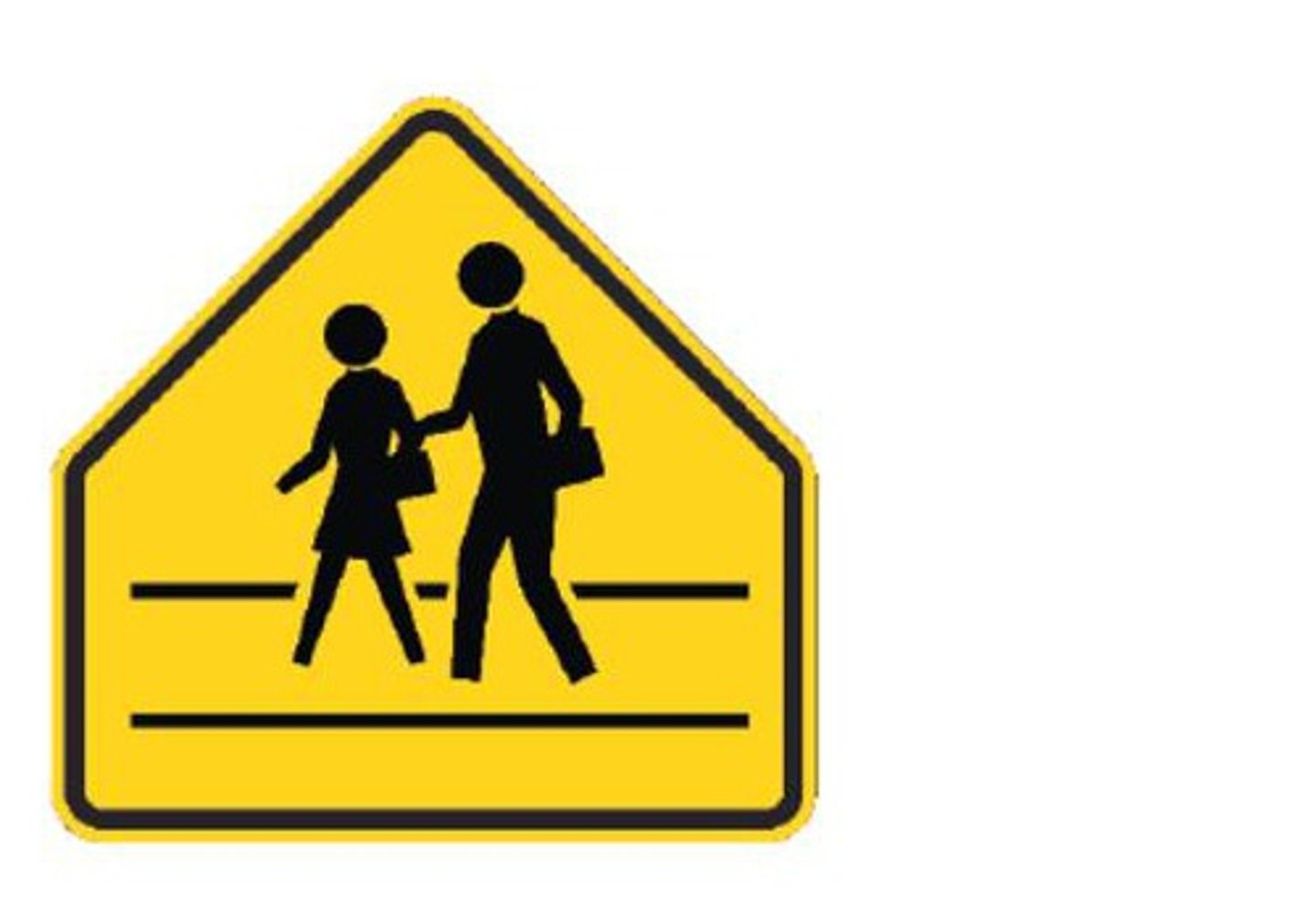
Railroad Crossing Signs
Railroad crossing ahead, yield!
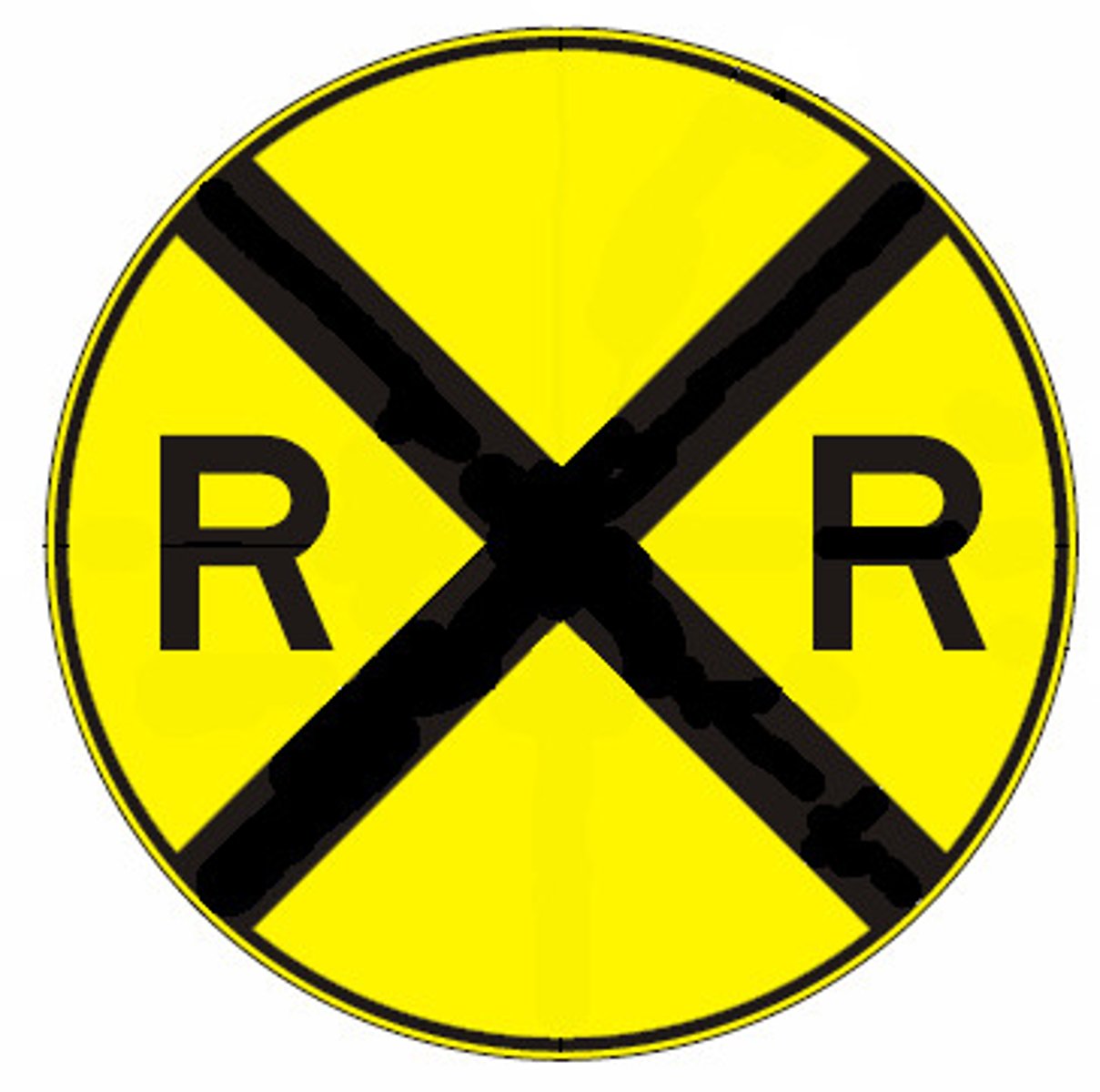
Regulatory Signs
Provides traffic rules.
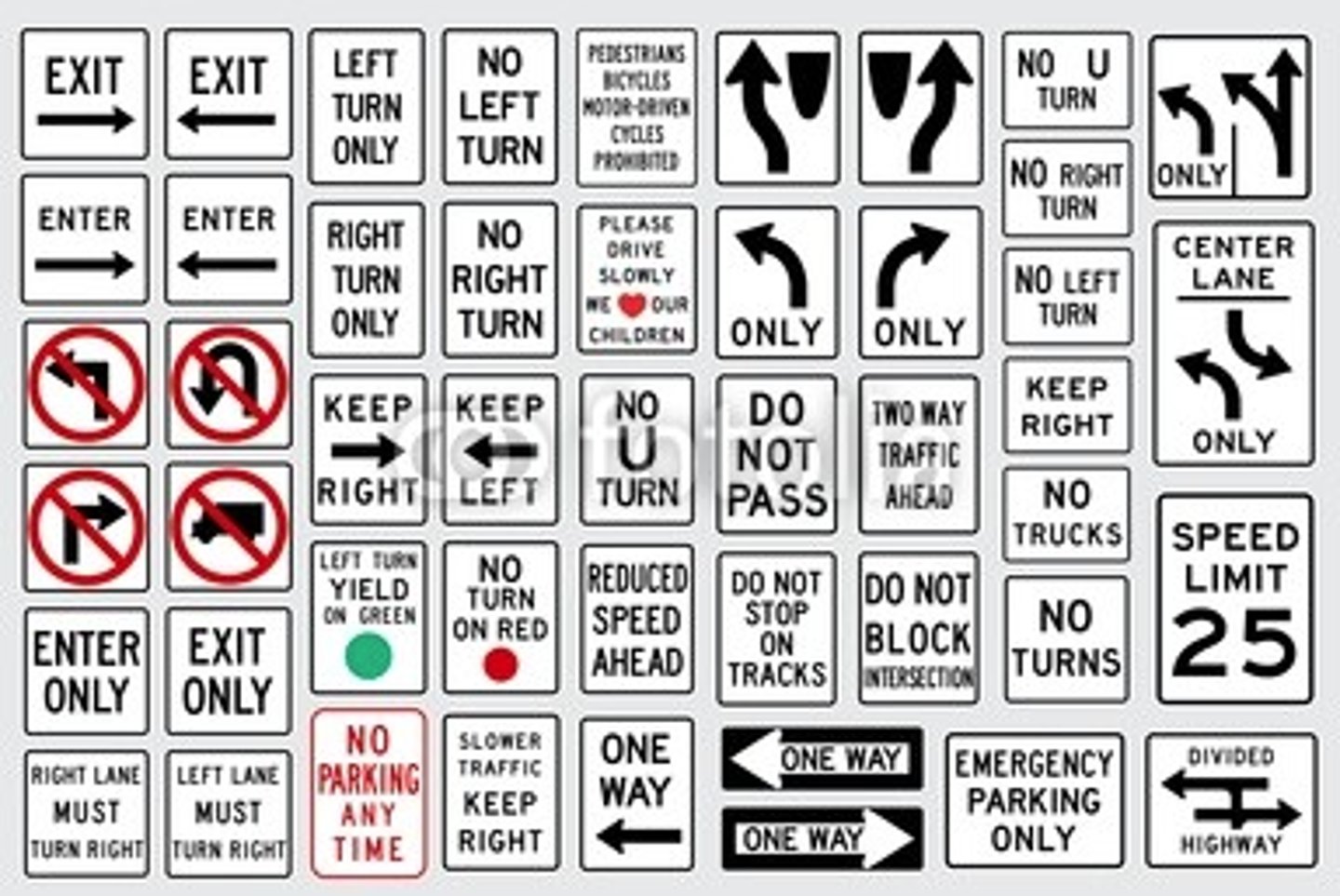
Speed Limit Sign
Tells you the max or min speed.
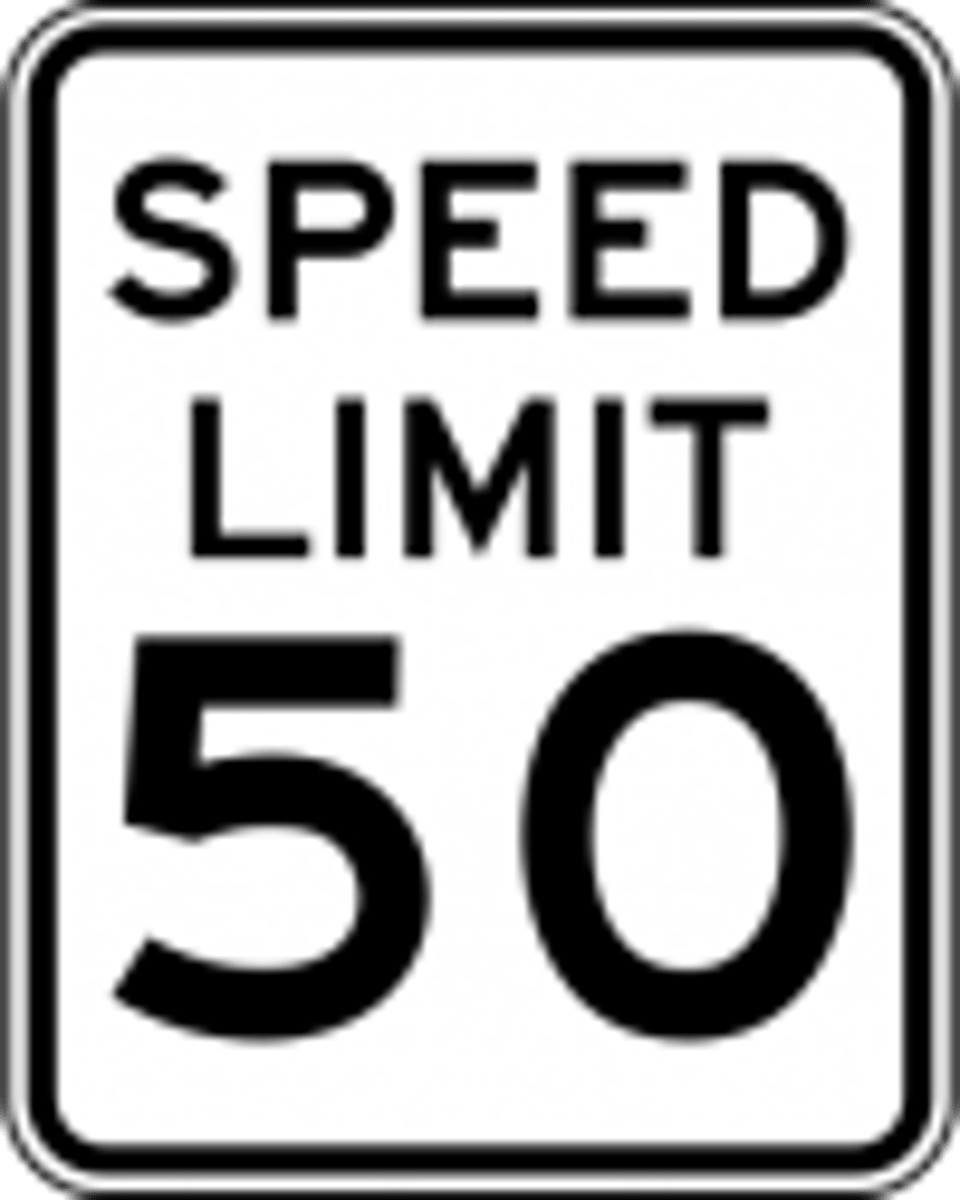
Lane Use Control Signs
Tells you where or when you can go, turn, etc.
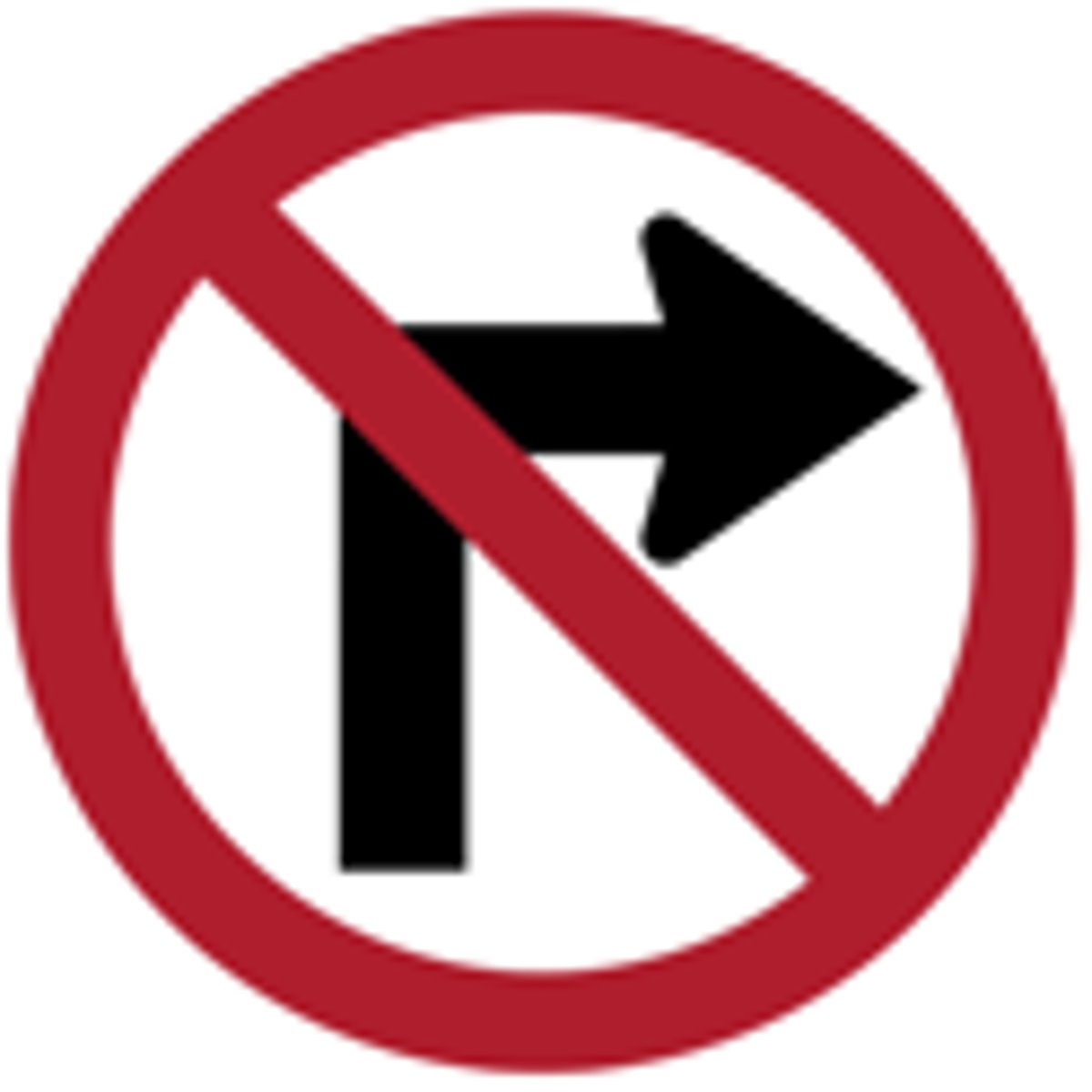
No Passing Signs
Tells you where passing another car is allowed or not allowed; also shows where passing zones begin and end.
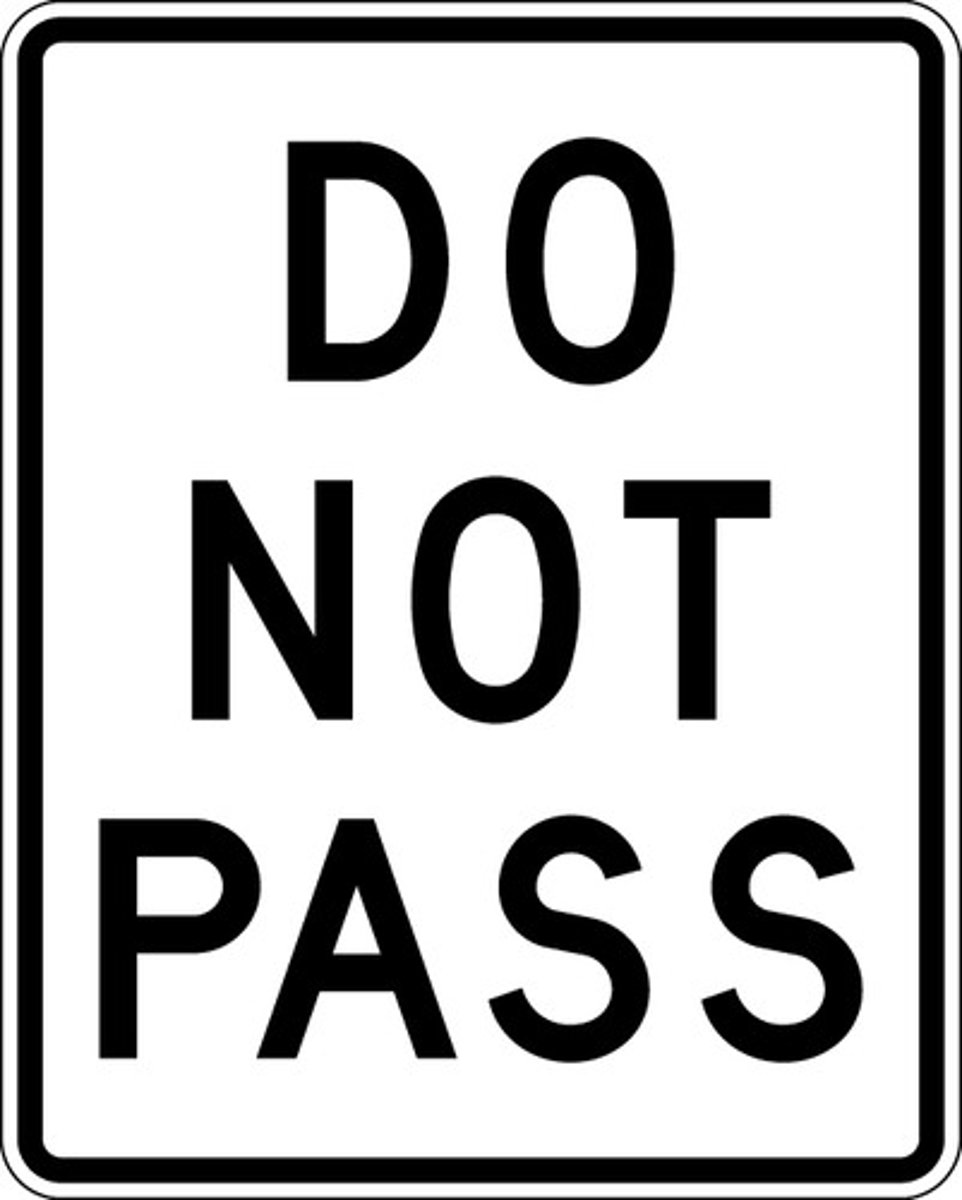
Stop Sign
Tells you when to make a full stop, only go when safe (yield to those with right-of-way).
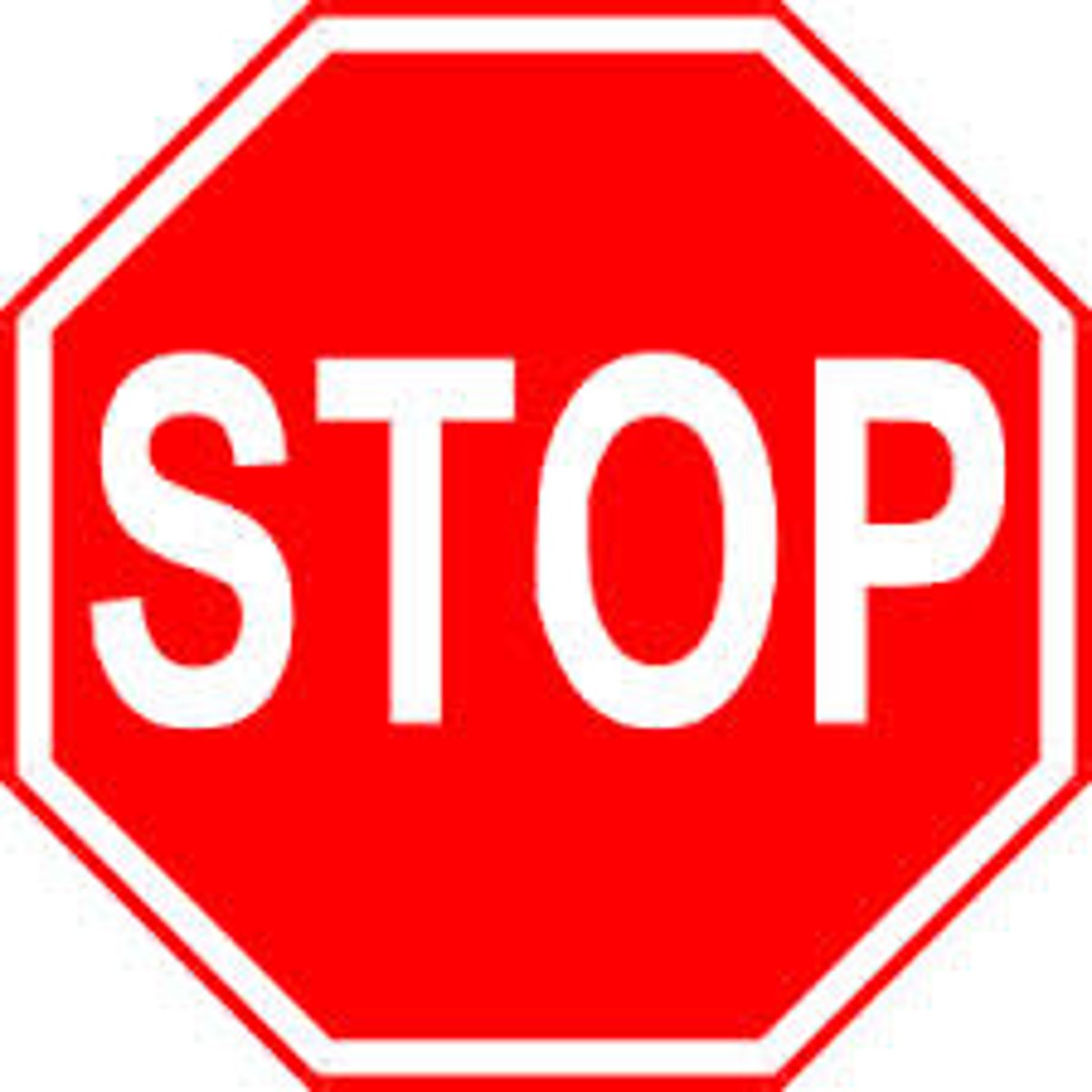
Yield Sign
Yield to those with right-of-way!
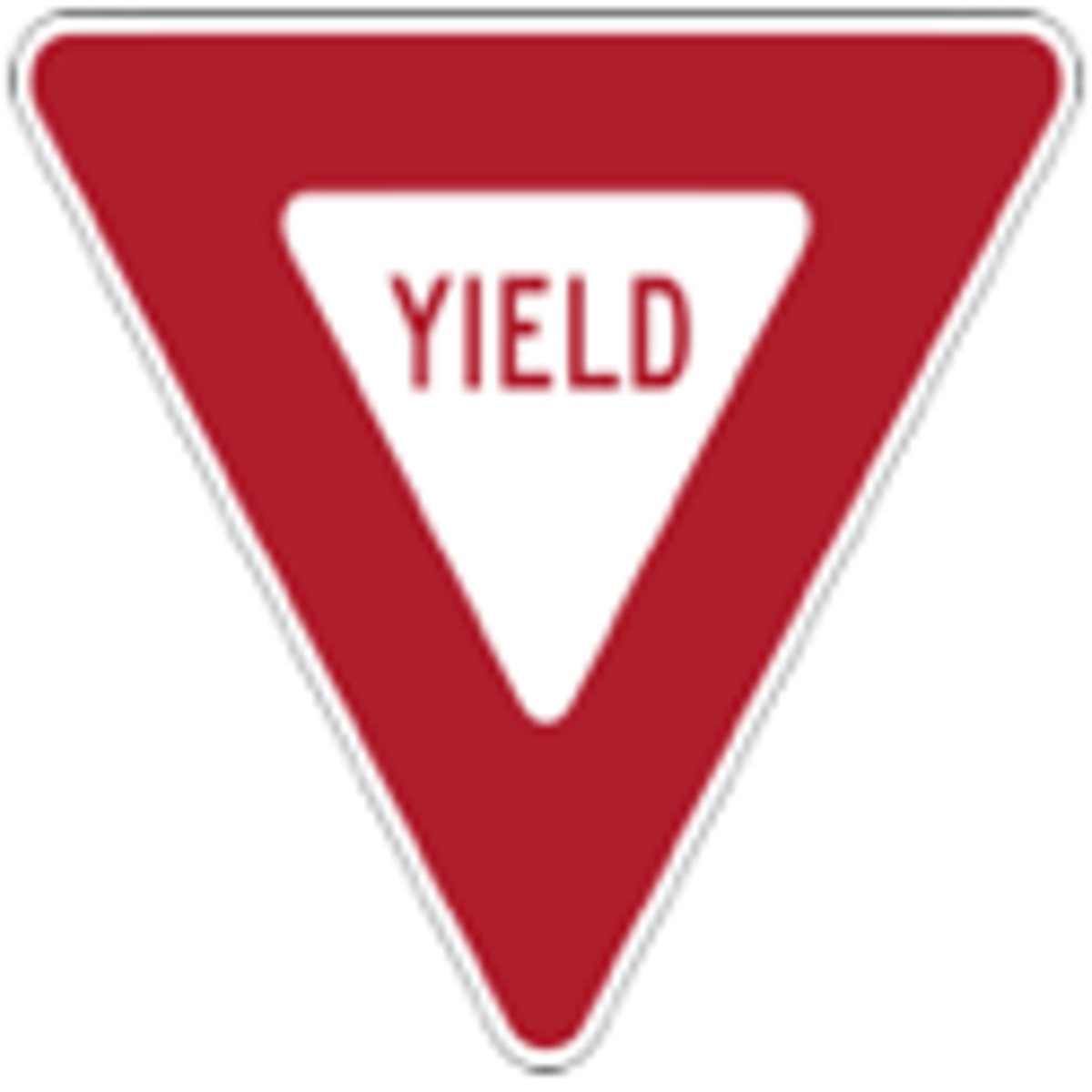
Do Not Enter Sign
Prevents you from entering a one-way street against traffic.
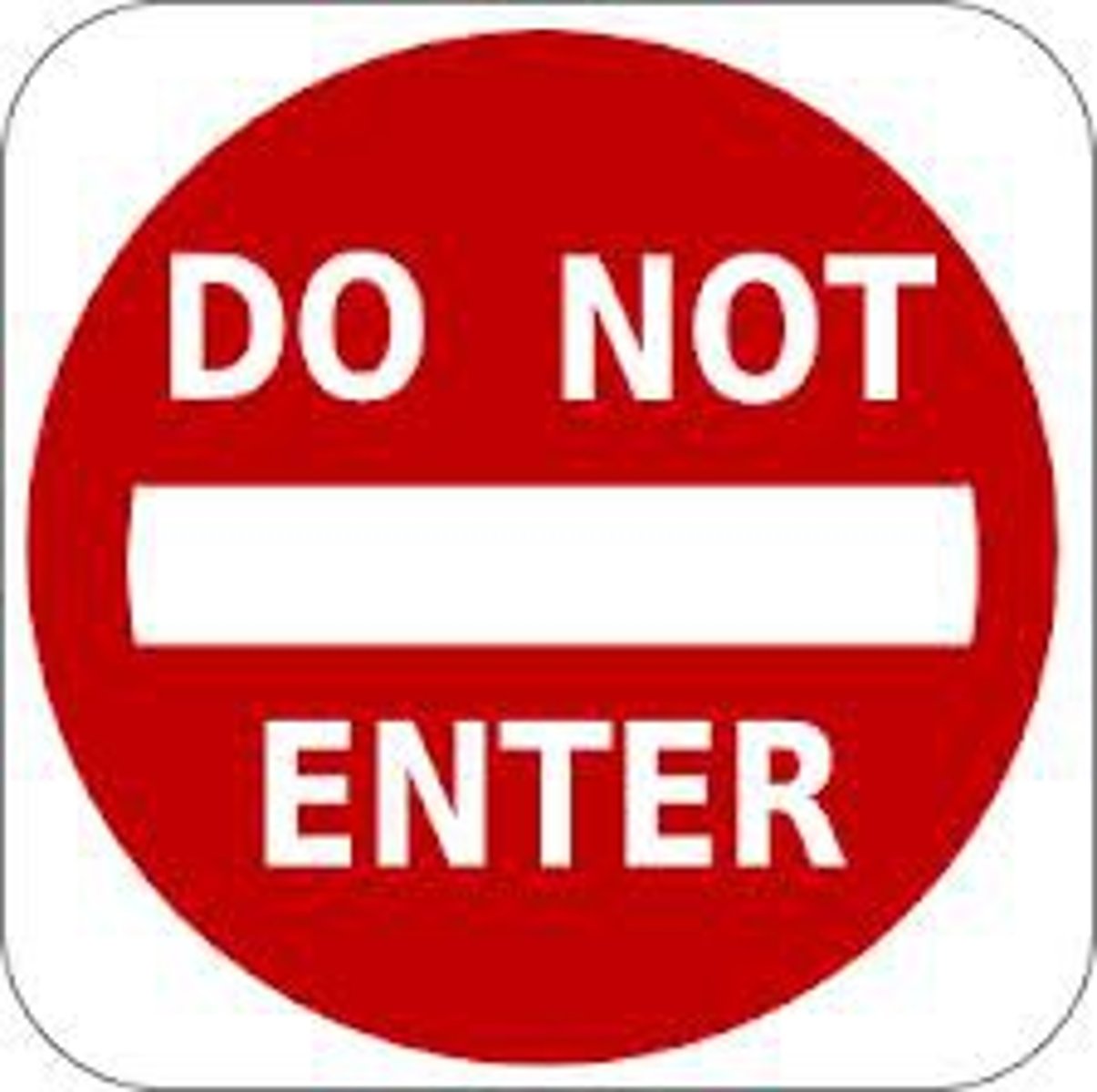
Slow-Moving Vehicle Sign
A vehicle presents this sign when it can only travel 25mph or less.
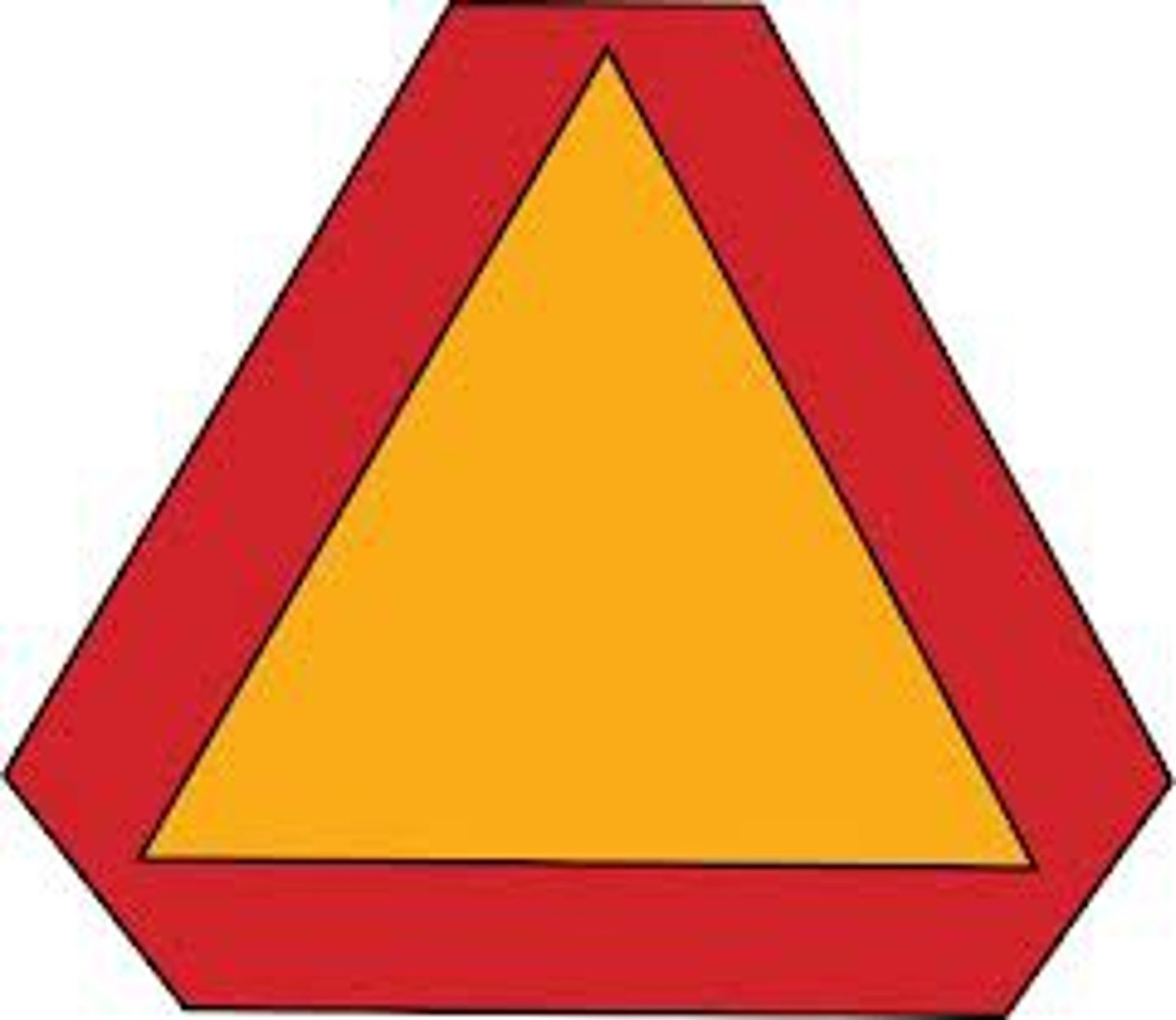
Guide Signs
Shows directions or distance to different locations (cities, airports, state lines, national parks, historical areas, or museums).
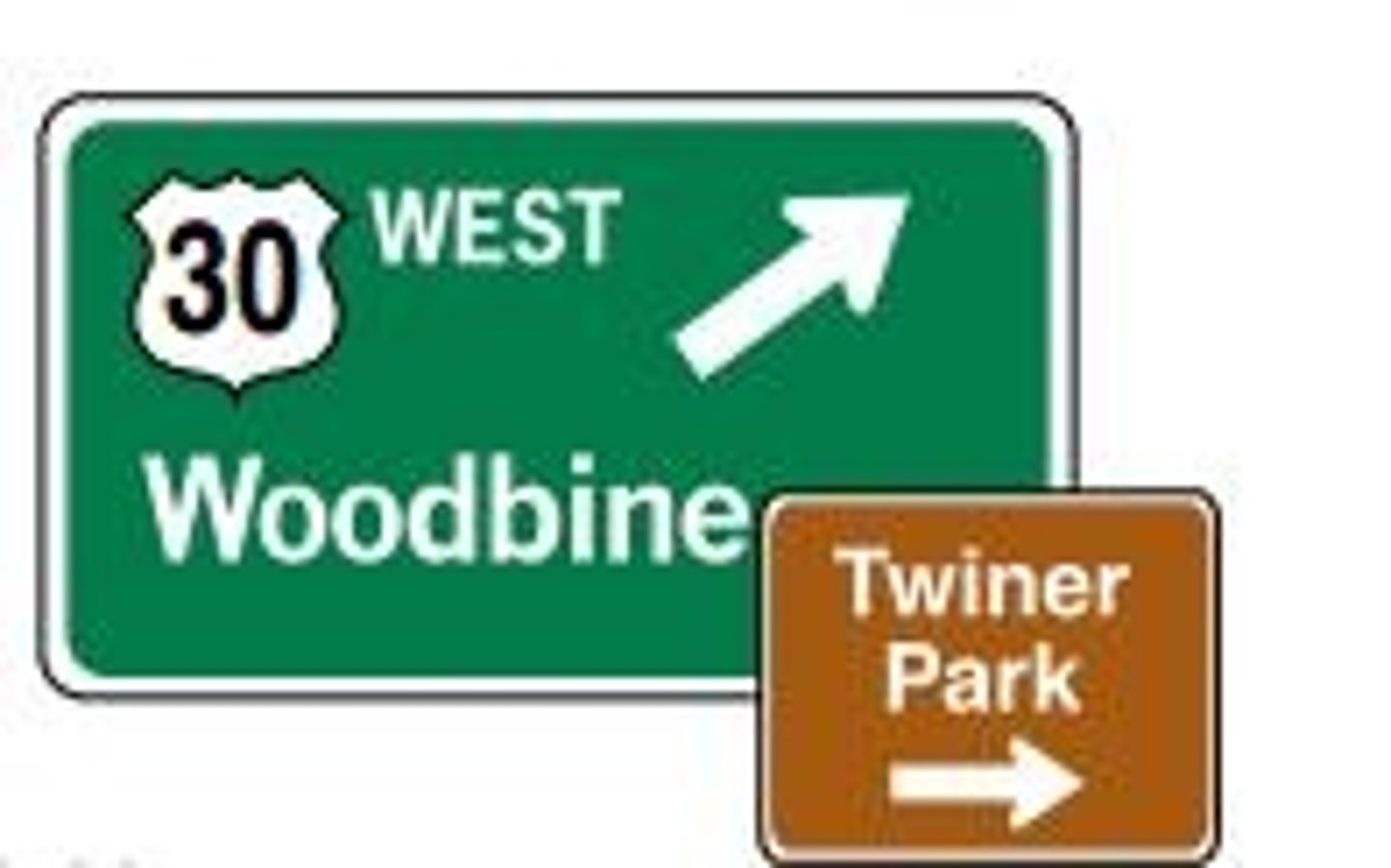
Service Signs
Shows location of services (rest areas, gas stations, campgrounds, or hospitals).
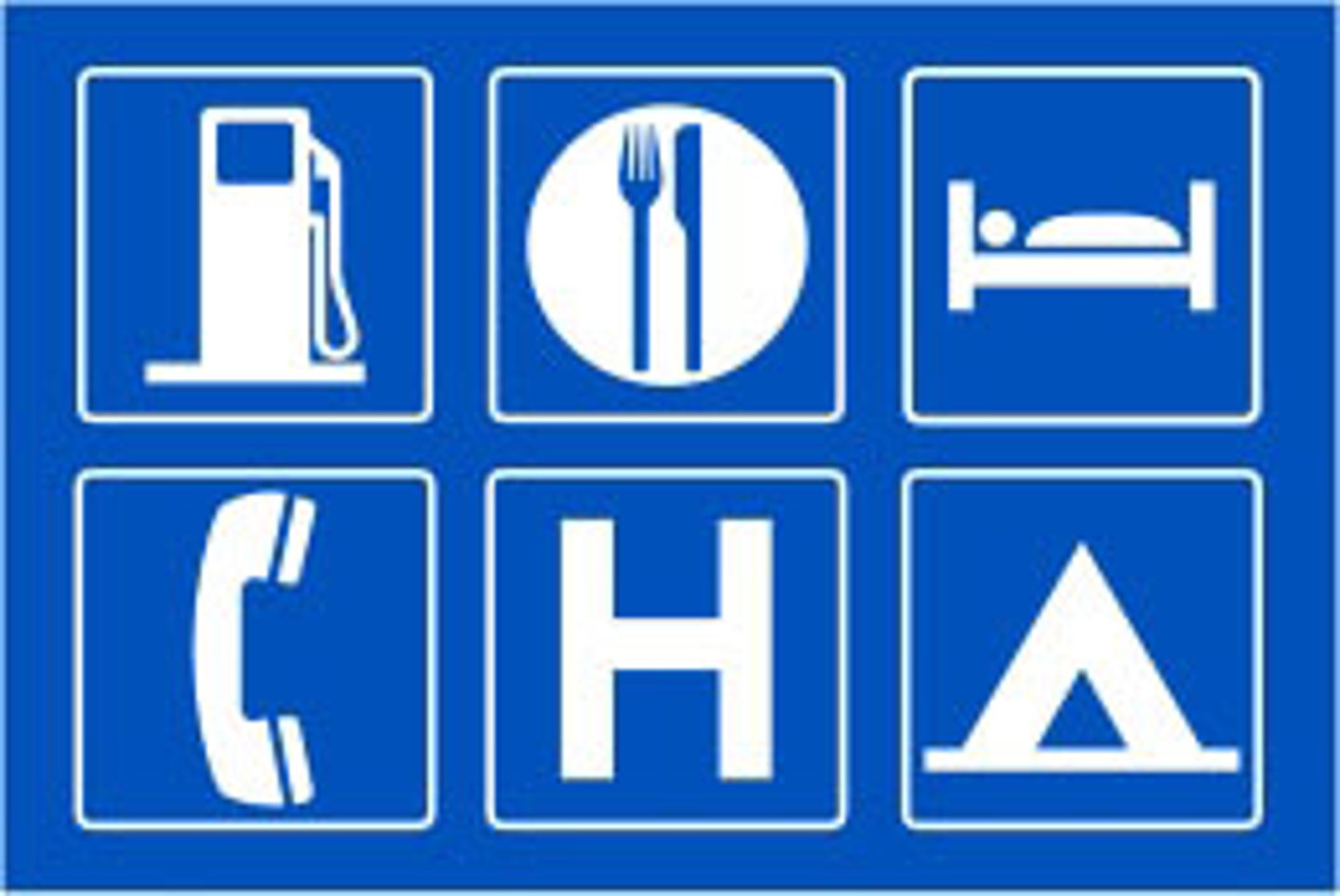
Route Number Signs
Indicates type of roadway (interstate, state, city, county road).

Dashed White Lines
May cross if safe to do so!
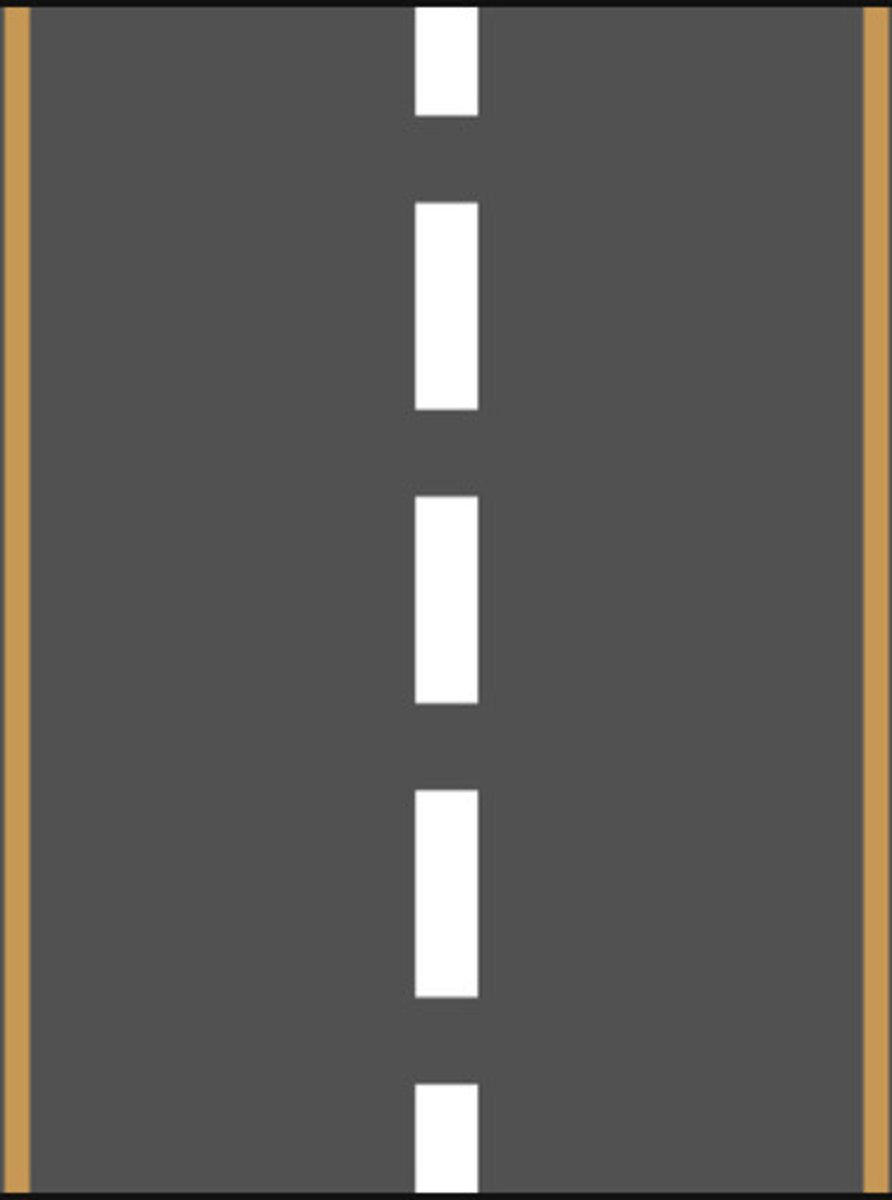
Solid White Lines
Do not cross (except when avoiding accidents or pulling off for emergency personnel).
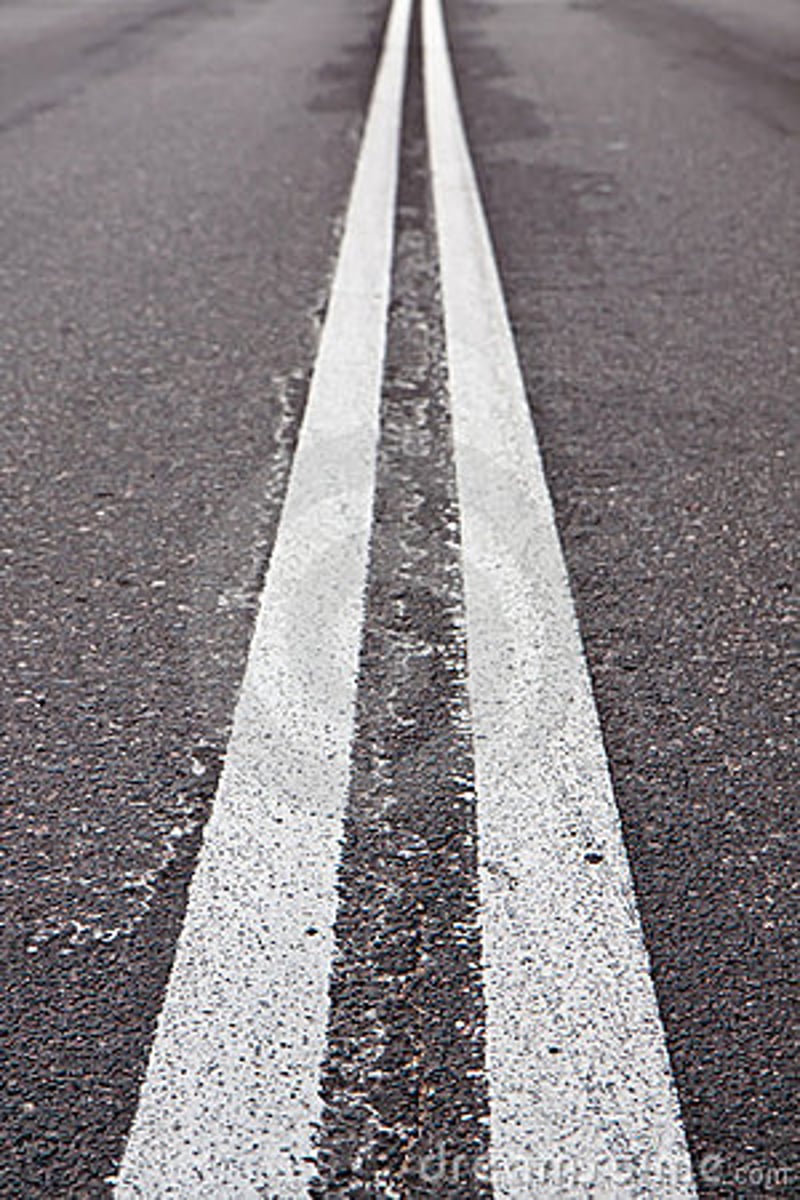
White Lines (General)
Separates lanes of traffic going in the same direction.
Yellow Lines (General)
Separates lanes of traffic going in opposite directions.
Dashed Yellow Lines
May cross if safe to do so, watch for passing zones or signs!
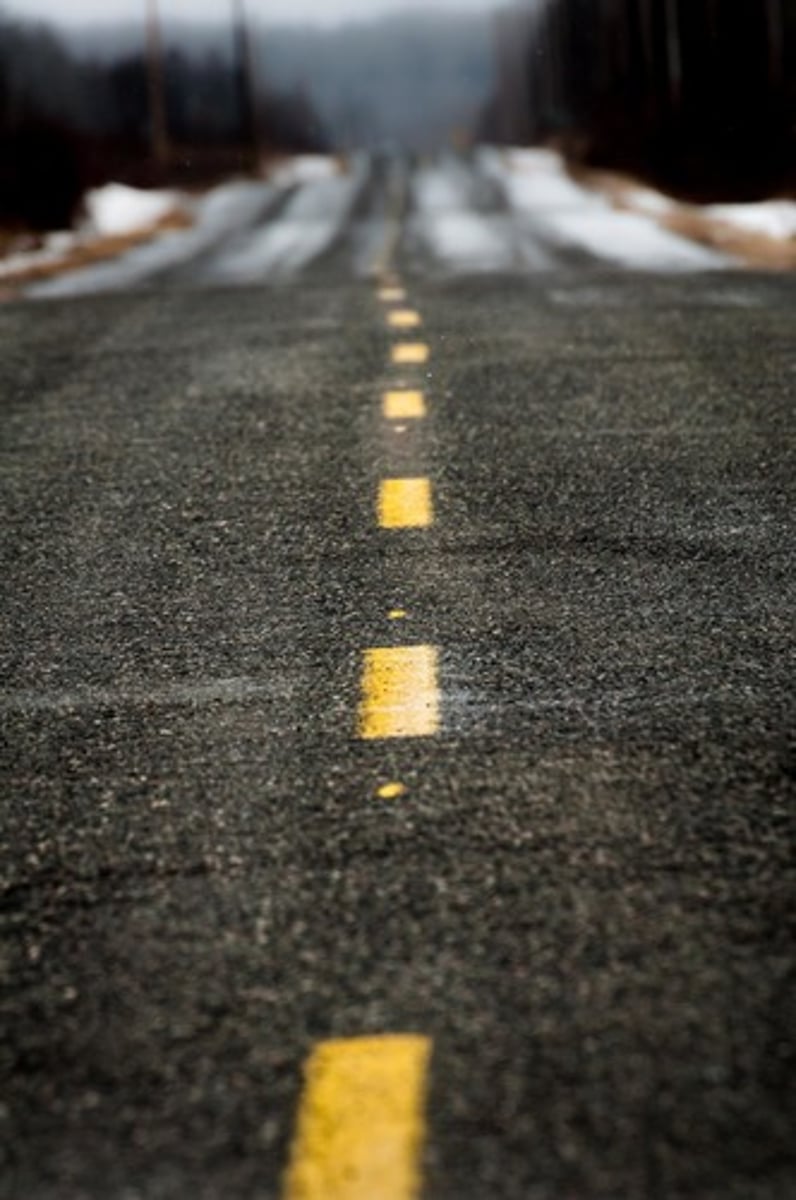
Solid Yellow Lines
May not cross (few exceptions).
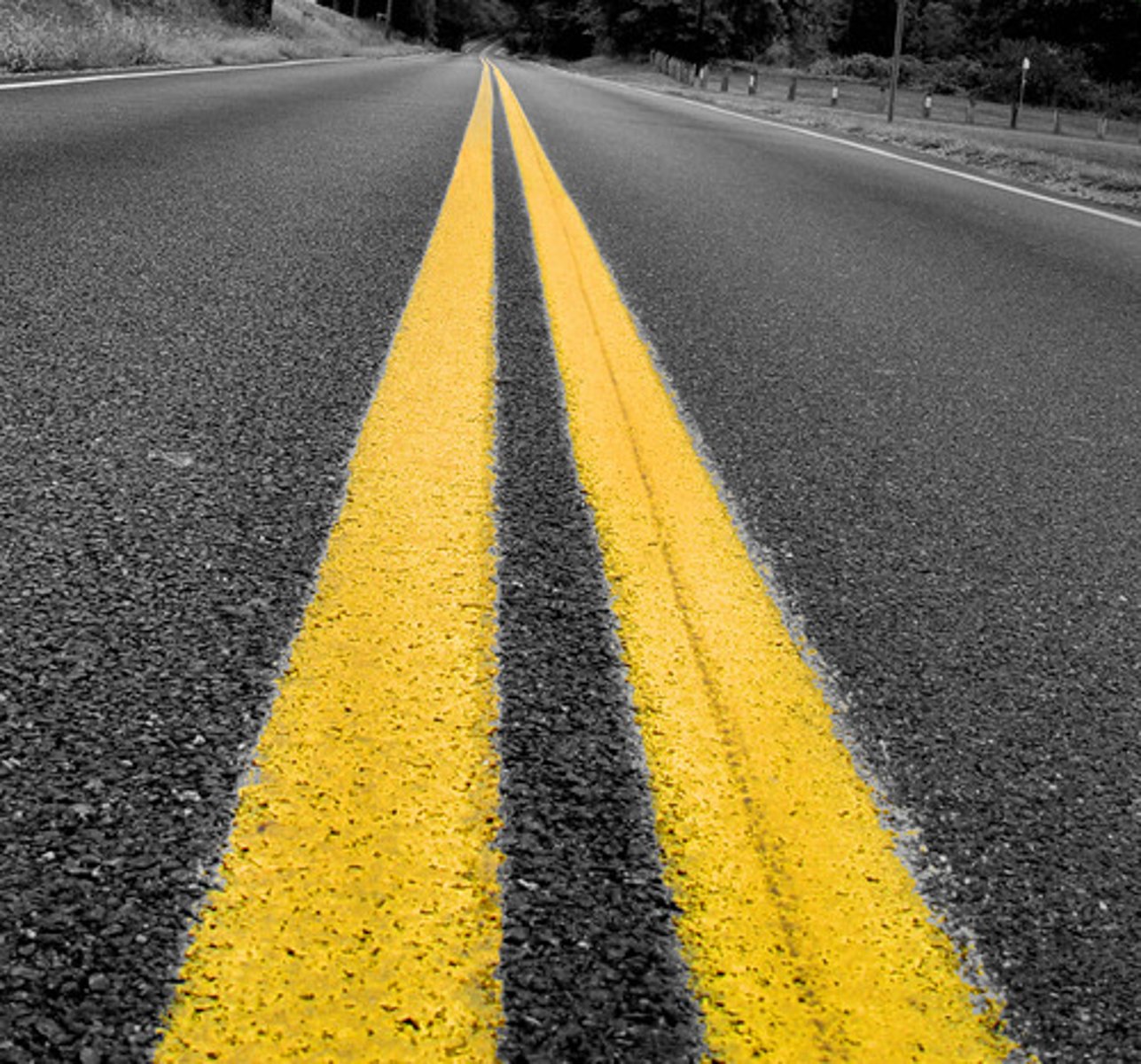
Reserved Lanes
Lanes reserved only for certain vehicles (like bus/transit vehicles, bicycles, or HOV).
HOV
High Occupancy Vehicles, vehicles with more than one person.
Shared Center Lane
A lane used to make left turns or U-turns.
Left-Most Lane on Multi-Lane Roads
used to pass slower vehicles.
Do not stop or reverse...
on any travel lanes
Never drive on the...
shoulder of the road (unless told to do so by officials).
Never pass on the...
shoulder of the road.
When there are no forms of lane control, ...
turn from the left-most lane and turn into the left-most lane OR turn from the right-most lane and turn into the right-most lane.
Always use...
turn signals!
You must always yield to...
pedestrians, regardless if they are obeying traffic laws.
The White Cane Law
Those who are blind, visually impaired, or physically disabled have full access to all roads or sidewalks. If any accident occurs involving these people, the driver would be fully liable.
Those turning left...
must yield to oncoming traffic and pedestrians.
When entering a roundabout...
you must yield to all vehicles who are already in the circle. You can only move counterclockwise.
When entering an unmarked intersection...
you must yield to drivers coming from the right.
When at an unmarked four-way stop...
you must make a complete stop. The person who arrived at the intersection first will enter the intersection first. The next person will be the one on their right.
Do not enter an intersection if...
there is not room for you.
Emergency Vehicles ...
always have the right of way when their flashing lights are on! Pull off to the right- side of the road (if at an intersection, pulll through the intersection before pulling off).
When a school bus is stopped with it's flashing lights...
you must stop!!! (you are not required to stop if you are on the opposite side of the road and there is a physical barrier that is separating you and the bus, like a median) Yield to all kids!!!
Trains
always have right of way.
School Zone Speed Limit
15mph
Business/Residential Speed Limit
30mph
Public Highways Speed Limit
55mph
Rural Interstate Highways Speed Limit
75mph
When parking on a hill...
turn your wheels sharply towards the curb so you'll move out of the way of traffic if you roll.
White Lines (Parking)
only short stops are allowed.
Yellow Lines (Parking)
for loading zones or other restricted areas.
Red Lines (Parking)
for fire zones, no parking or standing.
Blue Lines (Parking)
for handicap parking only.
Steering Wheel Positions
10am and 2pm OR 9am and 3pm
The direction you are looking...
is the direction you will go! (Good rule of thumb is to look aboout one block ahead of you)
Before Turning Left
Look for a safe opening and double-check there's no oncoming traffic or pedestrians.
Before Turning Right
Make sure there is no traffic approaching from the left or any pedestrians. You may turn right on red if not prohibited.
Do not rely on traffic signals or signs to tell you no one will be in your way...
because not everyone follows traffic laws/rules.
When waiting for a train to pass on a multi-track crossing...
wait for it to pass completely and make sure it wasn't hiding another train friend.
When changing lanes...
check your side mirrors, rear mirrors, and blindspots!
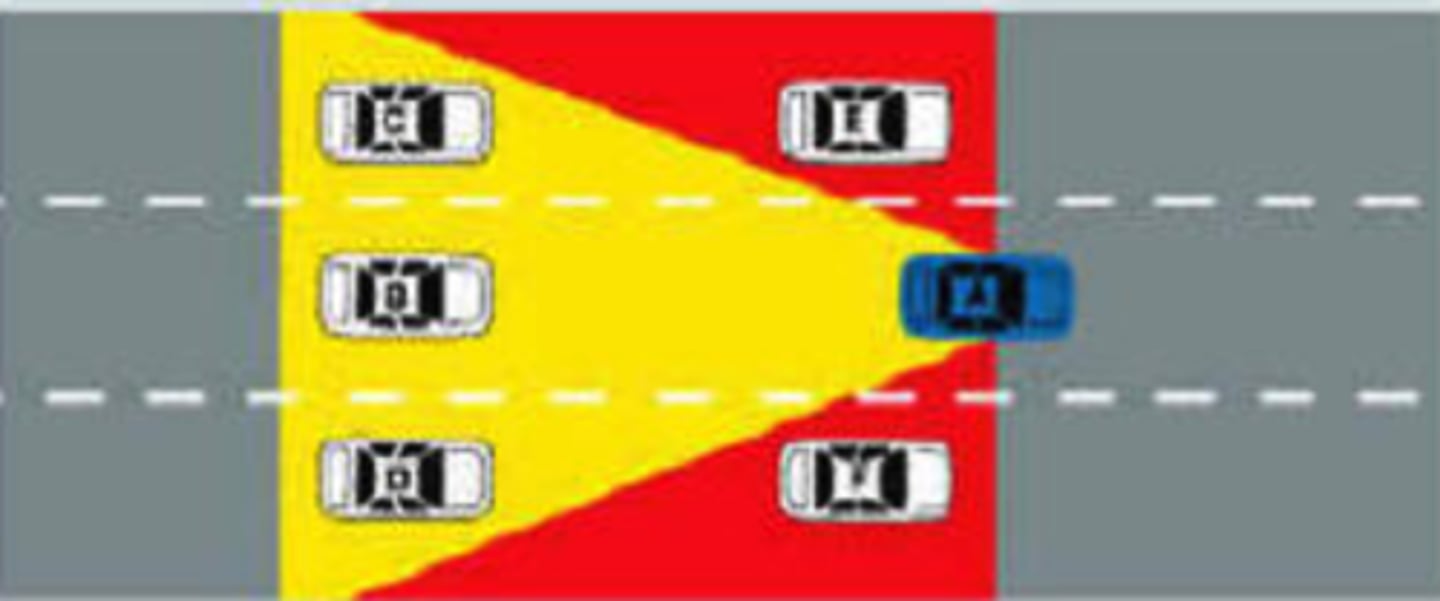
When reversing...
don't rely on rear mirrors, look behind you. Move slowly since it's difficult to see and steer.
When there are no oncoming cars (at night)...
you can use your high beams.
When you are one block away from an oncoming vehicle at night...
dim your high beams.
Use low beams...
when following another vehicle within 200ft or in heavy traffic at night.
When in fog, snow-storm, or heavy rain...
use your low beams to avoid the light from reflecting! Some cars have designated fog lights.
Parking lights
are only for parking! Never drive with these on!!!
Use headlights for
for seeing but also to be seen by other drivers!
Use your horn when
someone or something is entering your path unexpectantly or when someone is not paying attention.
Use BIG HORN when
anyone is about to enter the street (walk, run, ride, etc.), when another vehicle is in danger of hitting you, or when you have lost control and are about to hit someone.
Use emergency signals when...
your car breaks down.
Steps when/if your car breaks down:
Pull over as soon as possible and turn on your emergency signals.
Stay out of other people's...
blind spots!
Make sure to signal…
atleast 100ft before turning and also when changing lanes.
Slow down when…
approaching sharp curves, slippery roads, or standing water.
When there is ice on the road…
move at a crawl or don’t drive at all.
When it’s raining, only go…
35mph, otherwise you could hydroplane.
When hydroplaning…
ease off the gas and keep the steering wheel straight. Don’t continue until the tires grip the road again!
When driving in, entering, or exiting traffic…
keep pace with those around you. Going too fast and passing others often increases chances for collision. Being too slow also increases chances for collision.
Slow down when entering…
shopping centers, rush hour traffic, narrow bridges, narrow tunnels, toll plazas, schools, playgrounds, residential streets, or railroad crossings.
At night, the furthest you can see with headlights is…
400ft ahead, best not to go above 50mph.
In heavy weather like rain, fog, or snow, the futhest you can see is…
200ft ahead at best, best not to go above 30mph.
In weather or conditions that prevent you from seeing at all…
pull over and wait for the conditions to clear.
When travelling on hills or curves…
slow down just in case there are unexpected stops.